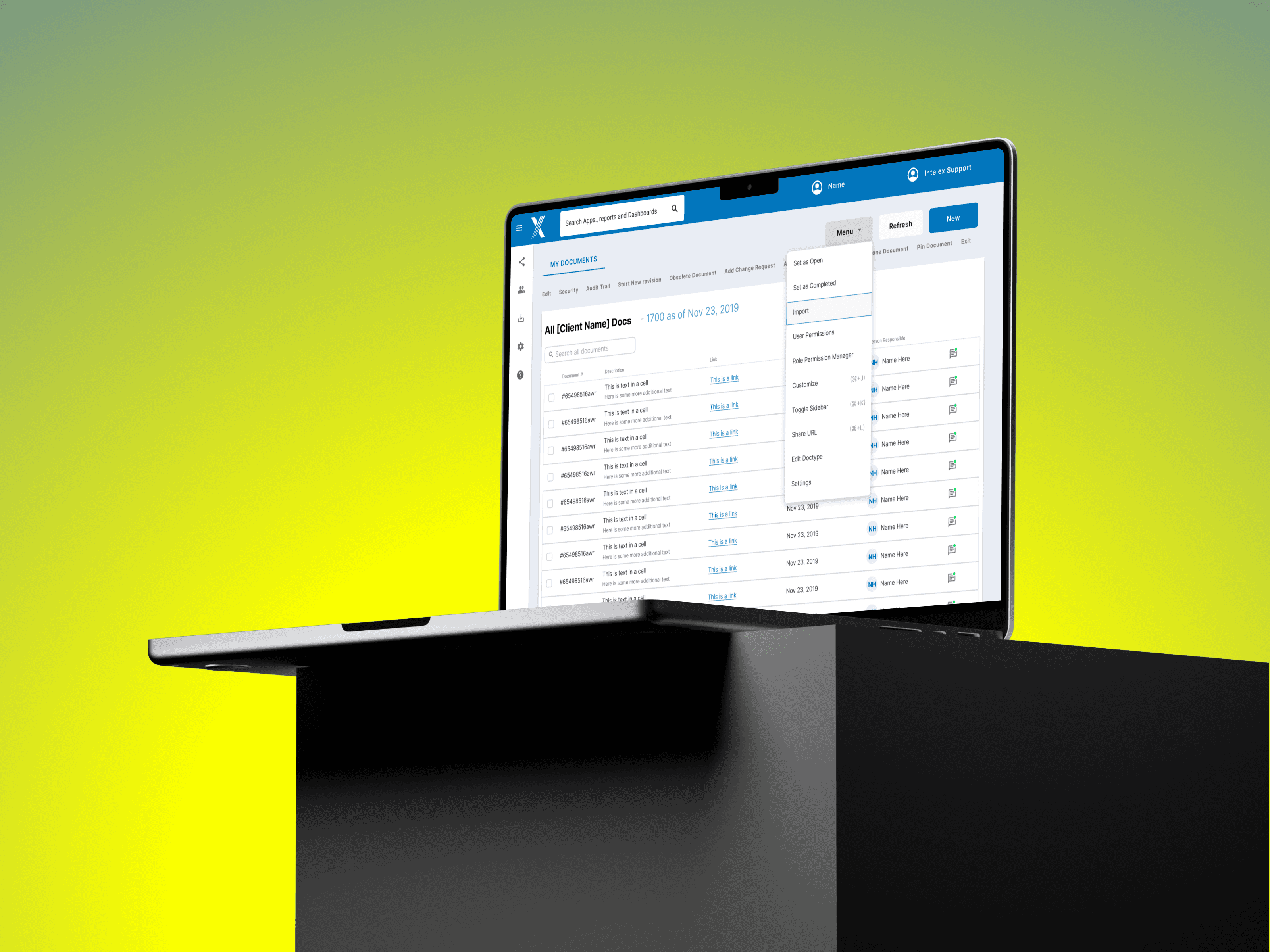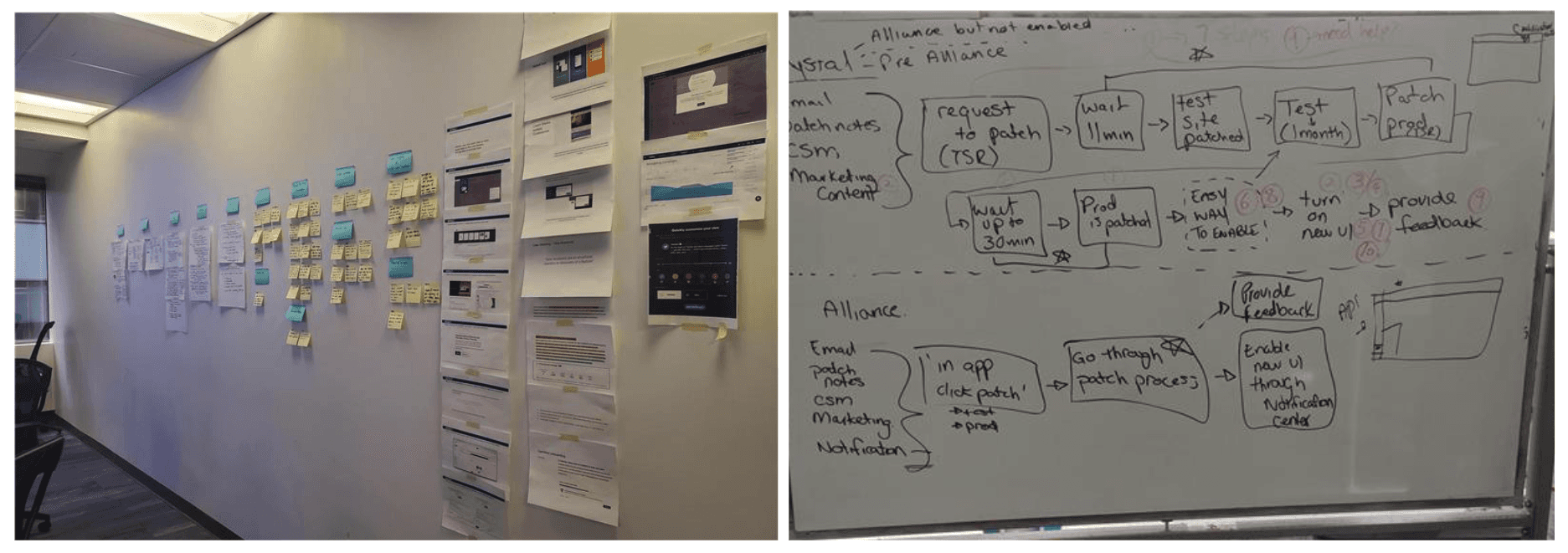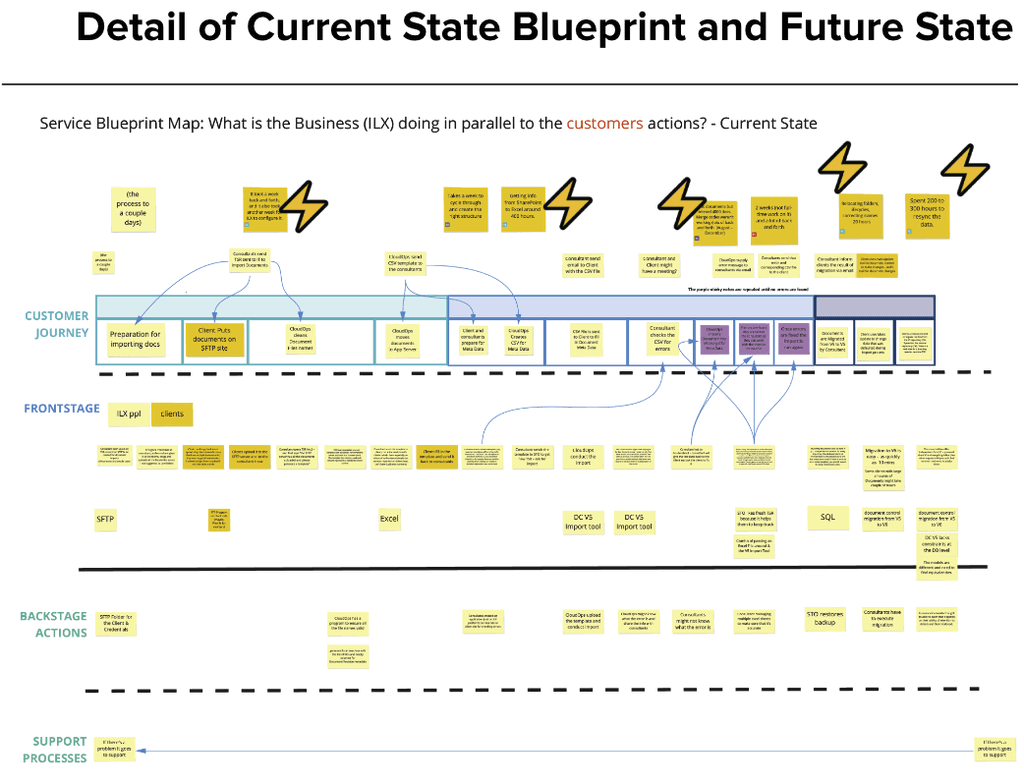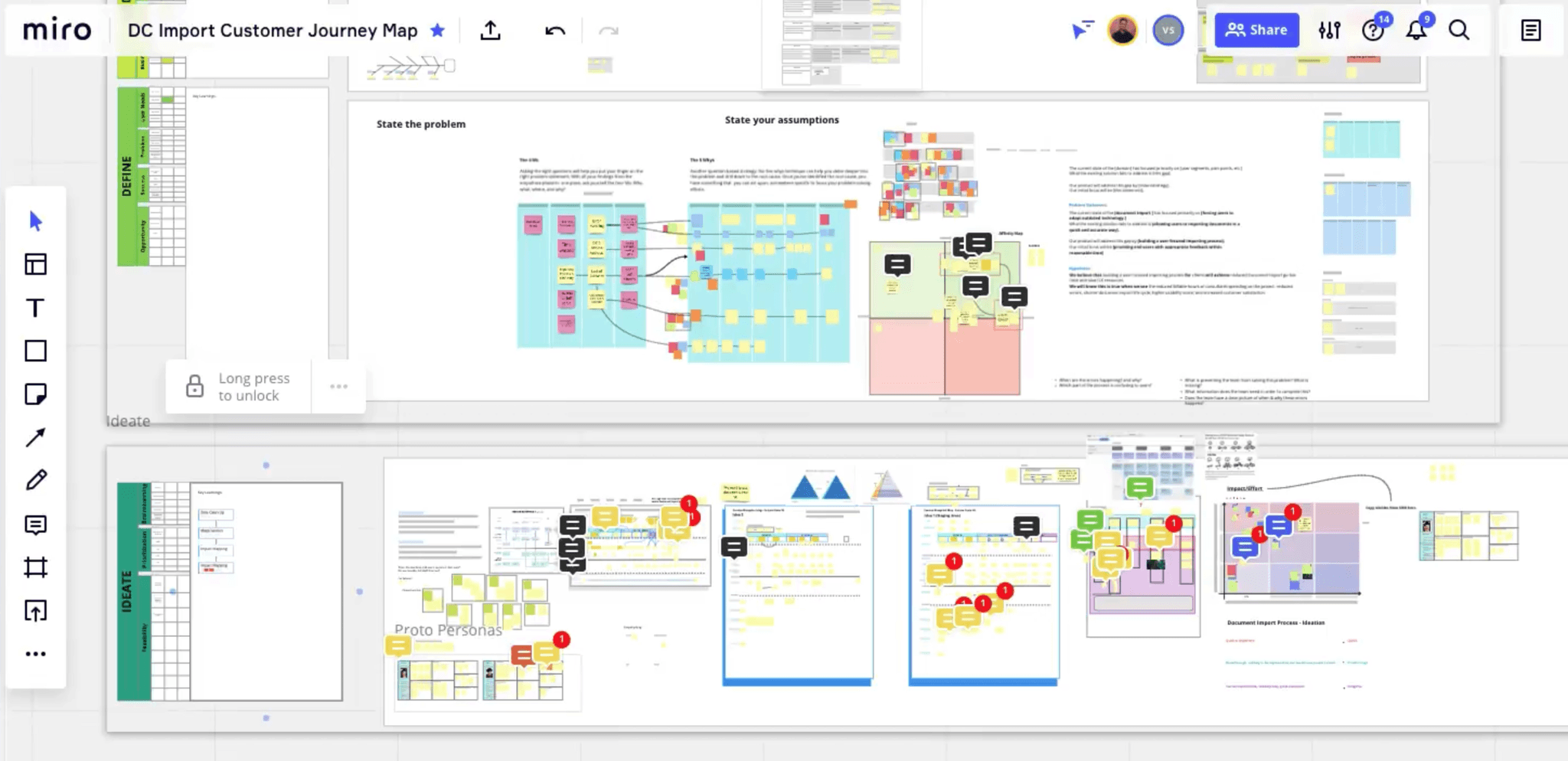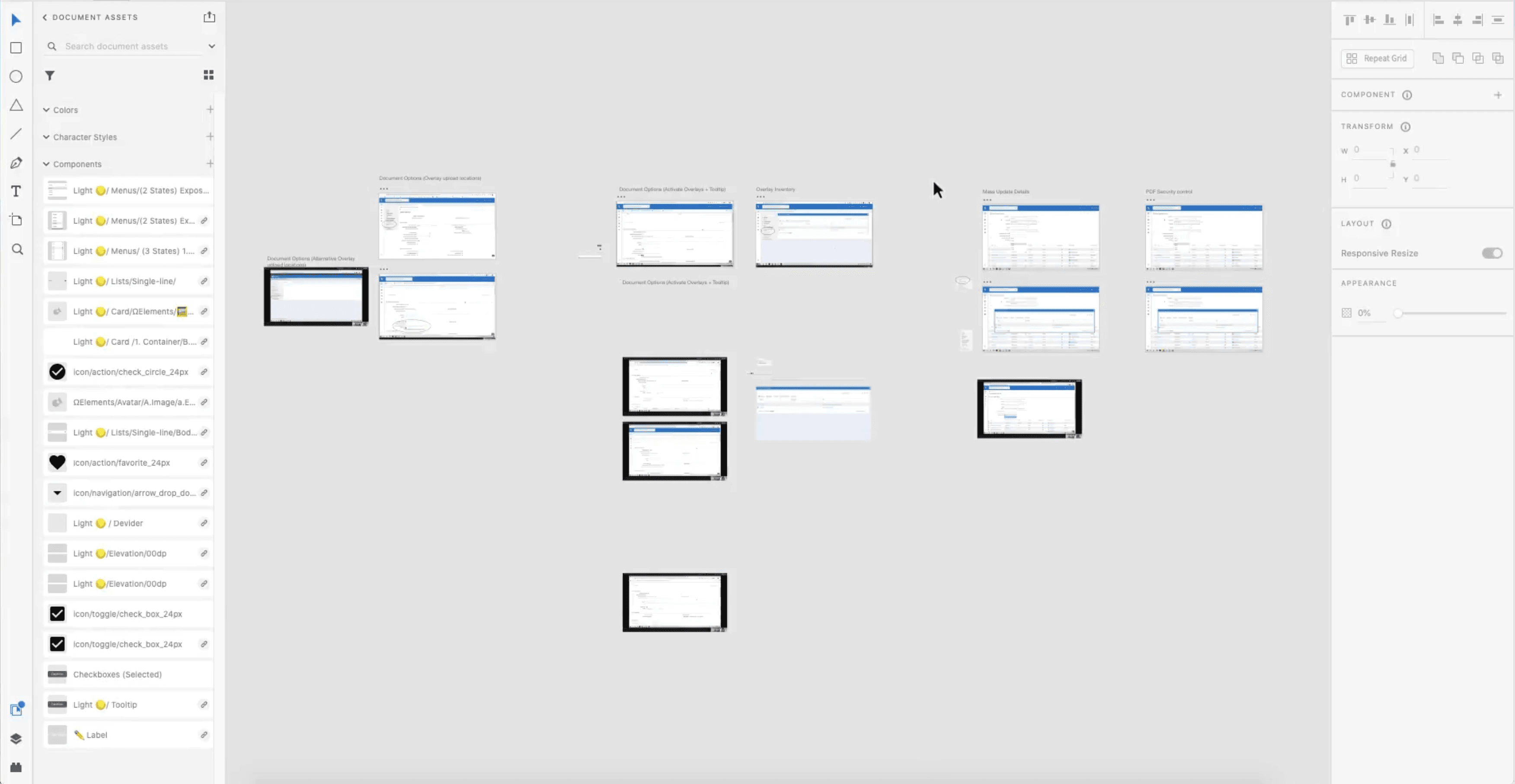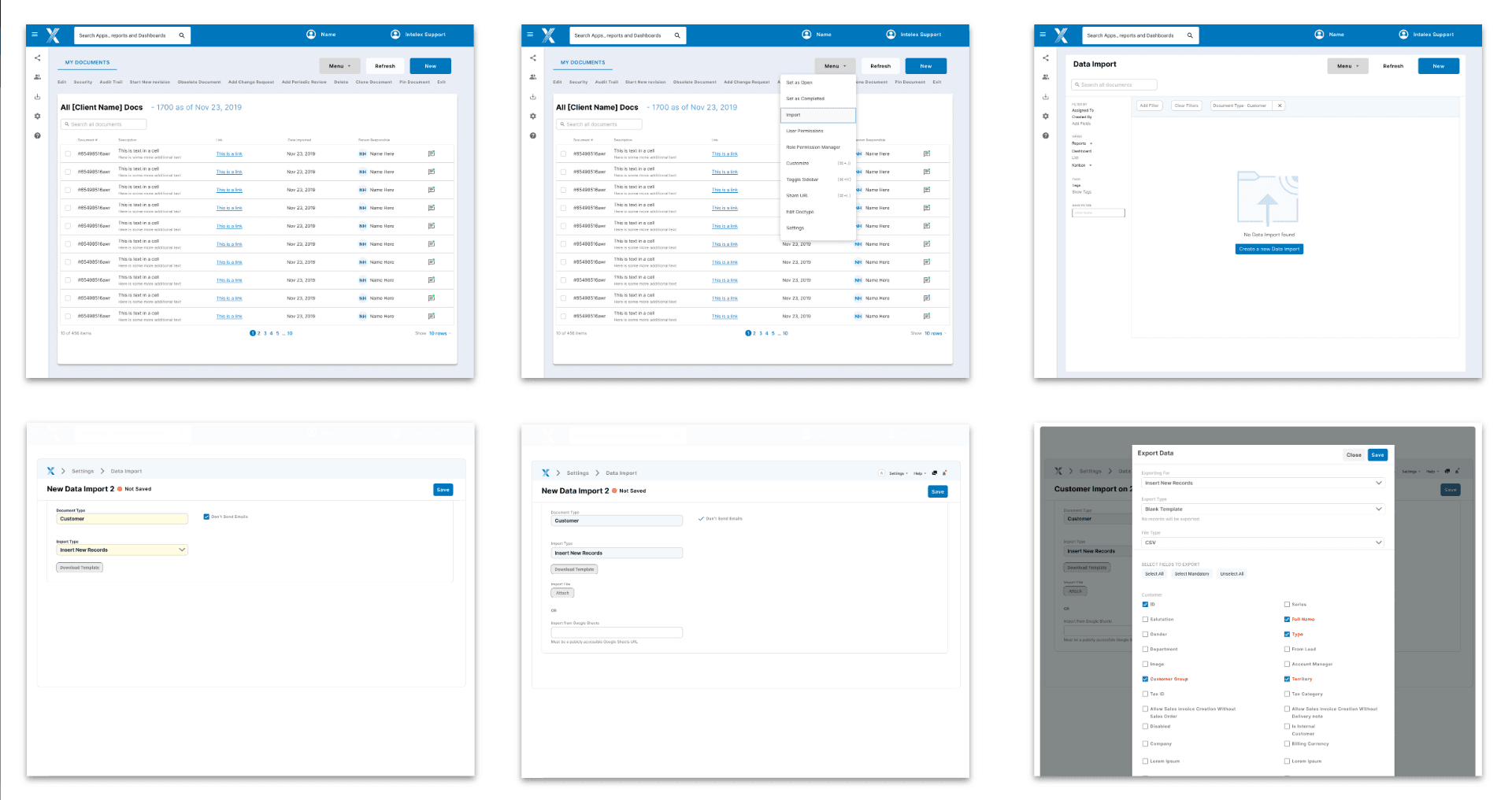Intelex Technologies
Redefining
Enterprise Onboarding
GOAL
Our goal was to replace the outdated document import control process with a new, efficient system. We aimed to streamline the import of documents and metadata, which previously relied on a combination of two projects.
Working with the Product Owner, Lead Developer, and dev team, we developed a new system to make the process more efficient. Our focus was on creating an easy-to-use, reliable solution that would effectively support document and metadata import.
Role
UX Designer
Year
2019
Duration
1 year
Team
Product Owner,
UX Researcher,
UX Designer (Me),
Engineering Lead,
Dev team
Deliverables
Stakeholder interviews
User interviews
Competitive Analysis
Workshops
Mockups
Prototypes
Executive presentations
Final specs
Asset production
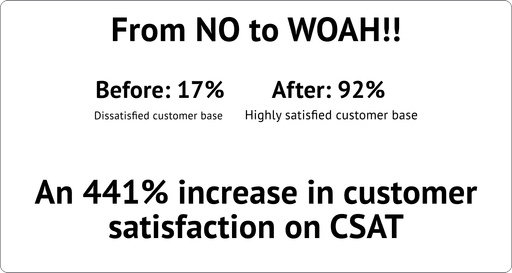
The Success Blocker
"Step 1. Empathize"
Empathize
Problem 1
Getting Documents, Files, preparing client data and documents to upload into the Intelex platform would take weeks and in some cases months (up to 6 months time at its worst)
Therefore:
Time to value for clients takes way too long

Empathize
Problem 2
Unbillable hours piling up due to the customer support team agents needed for clients who are unable to get their documents into the system.
A lot of back and forth from CST & Clients which adds to the delay to value on based on a product they just purchased.
Therefore:
Current state
too expensive for the business to sustain

Identifying Key Problems: Through surveys and interviews, we discovered critical issues and trends. This deep understanding allowed us to develop targeted strategies to tackle the challenges head-on.
“Before UX involvement, user adoption was low. Releases would come back needing an improvement package, or we find out 6 months later that the direction wasn’t working for clients.”
— Matt Conquer, Product Owner
Insights from the Problem Statement Workshop
Problem Statement:
The current [document import] process [forces users to adapt to old and clunky V5], neglecting the need for a quick and accurate way to import documents.
Our product will close this gap by [building a user-focused importing process]. Our initial focus on [providing end-users with appropriate feedback within reasonable time].
Problem Statement (Reversed):
From Chris Soon (10/15/2020): "Design a process that allows users to upload files directly into V6 Document Control, ensuring they can track uploads and make changes afterward."
Hypothesis:
We believe that building a user-focused importing process for clients will achieve reduced Document import go-live time and save Intelex resources.
We will know this is true when we see the reduced billable consultant hours, reduced errors, a shorter document import lifecycle, higher usability scores, and increased customer satisfaction.
Synthesizing
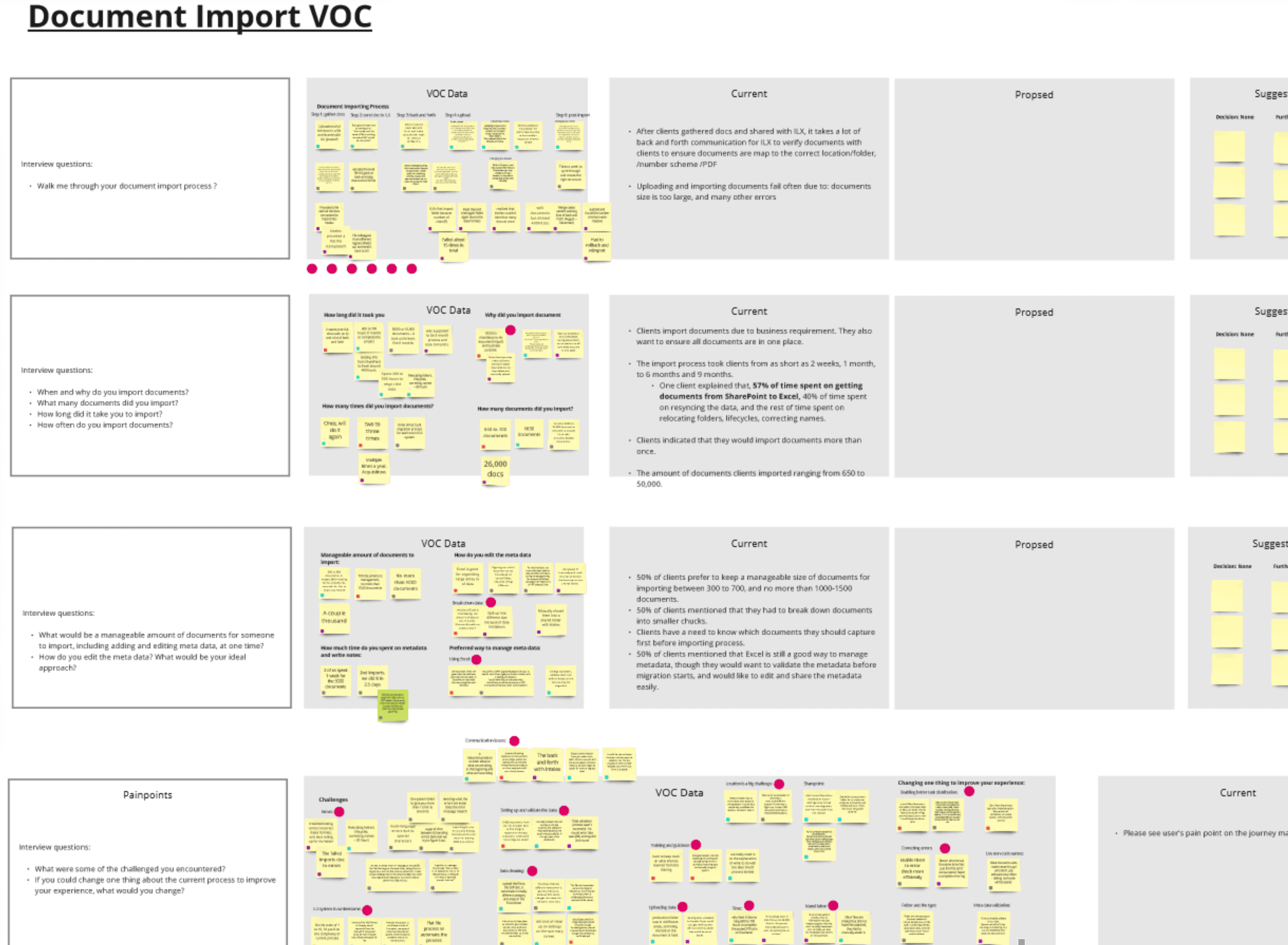
Target Customers
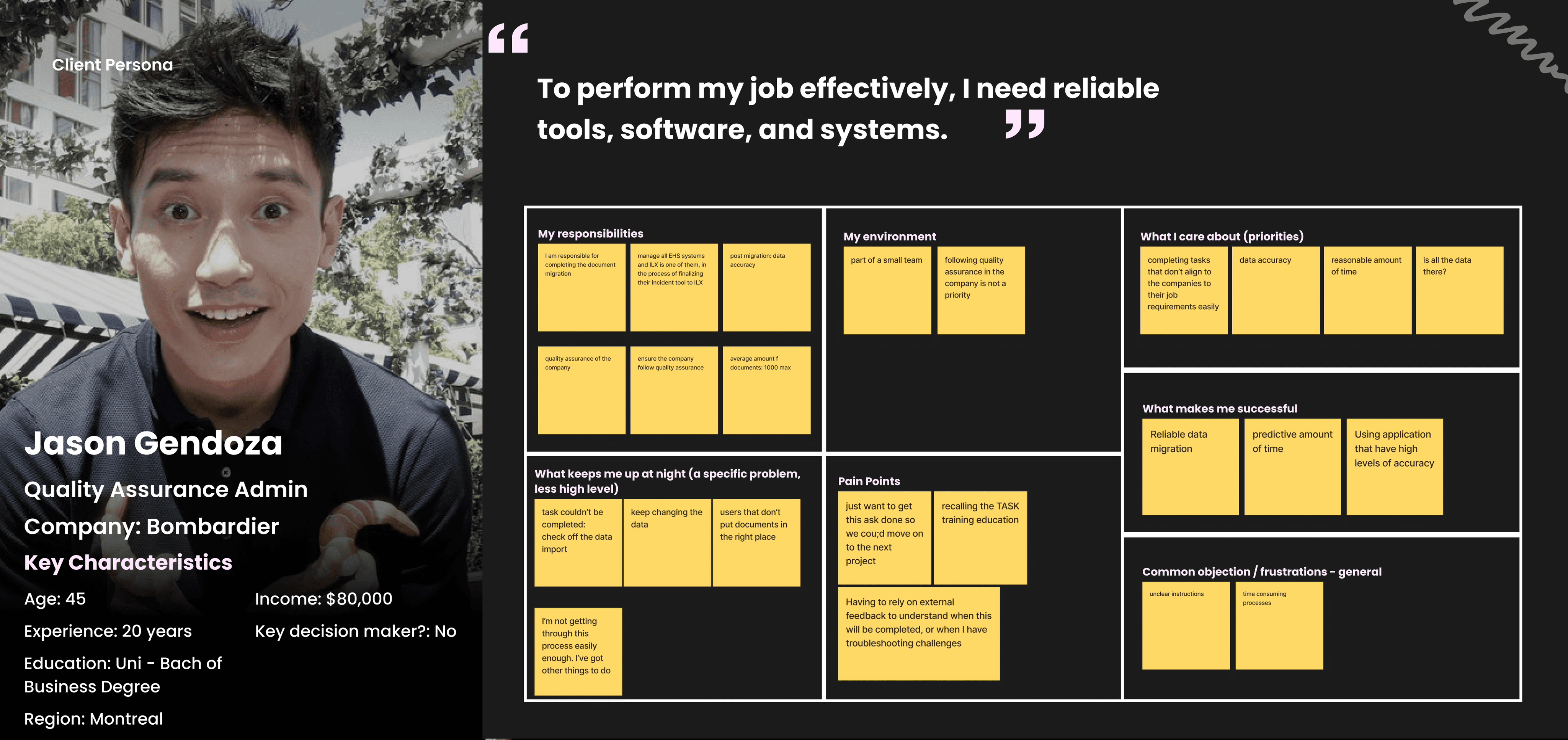
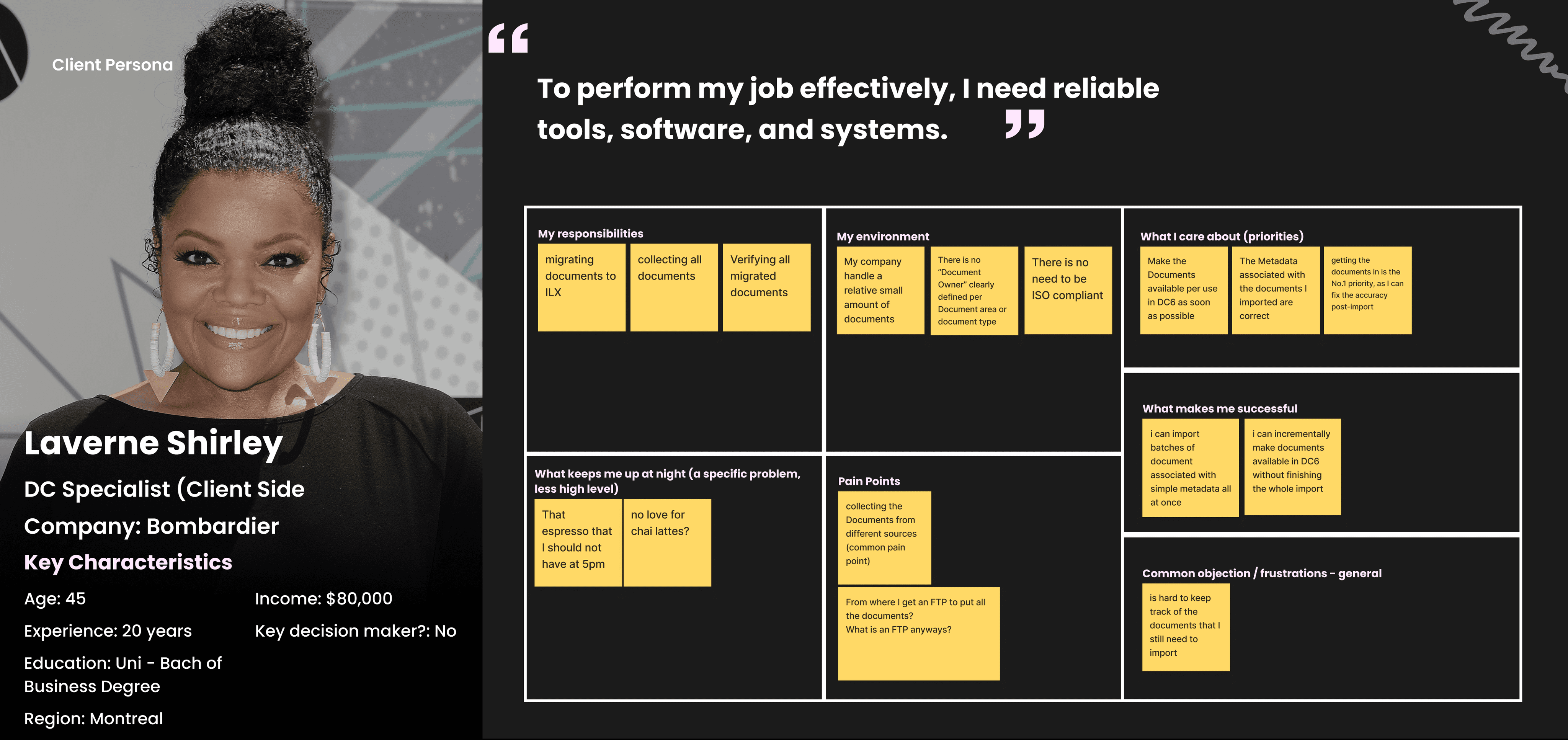
Root Cause Analysis Diagram
Analysis delved into various aspects of the user experience, including:
Tasks users were required to perform
Failure rates and troubleshooting errors encountered
Process of setting up and validating data
Document uploading procedures
Usability issues with the V5 system
Effort required for training and retention of clients
Clients found that data cleaning was particularly time-consuming, contributing significantly to the lengthy and manual nature of the process. This comprehensive analysis provided crucial insights that informed our progressing redesign efforts.
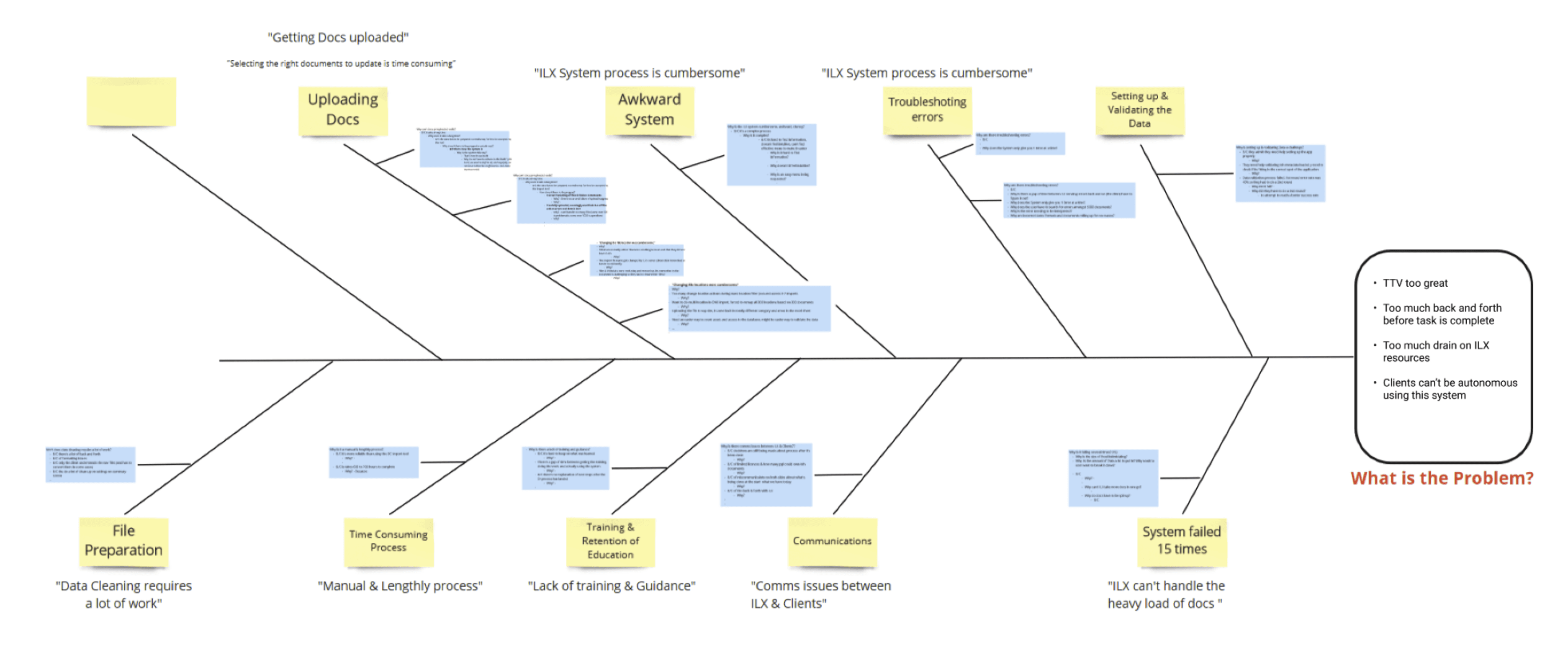
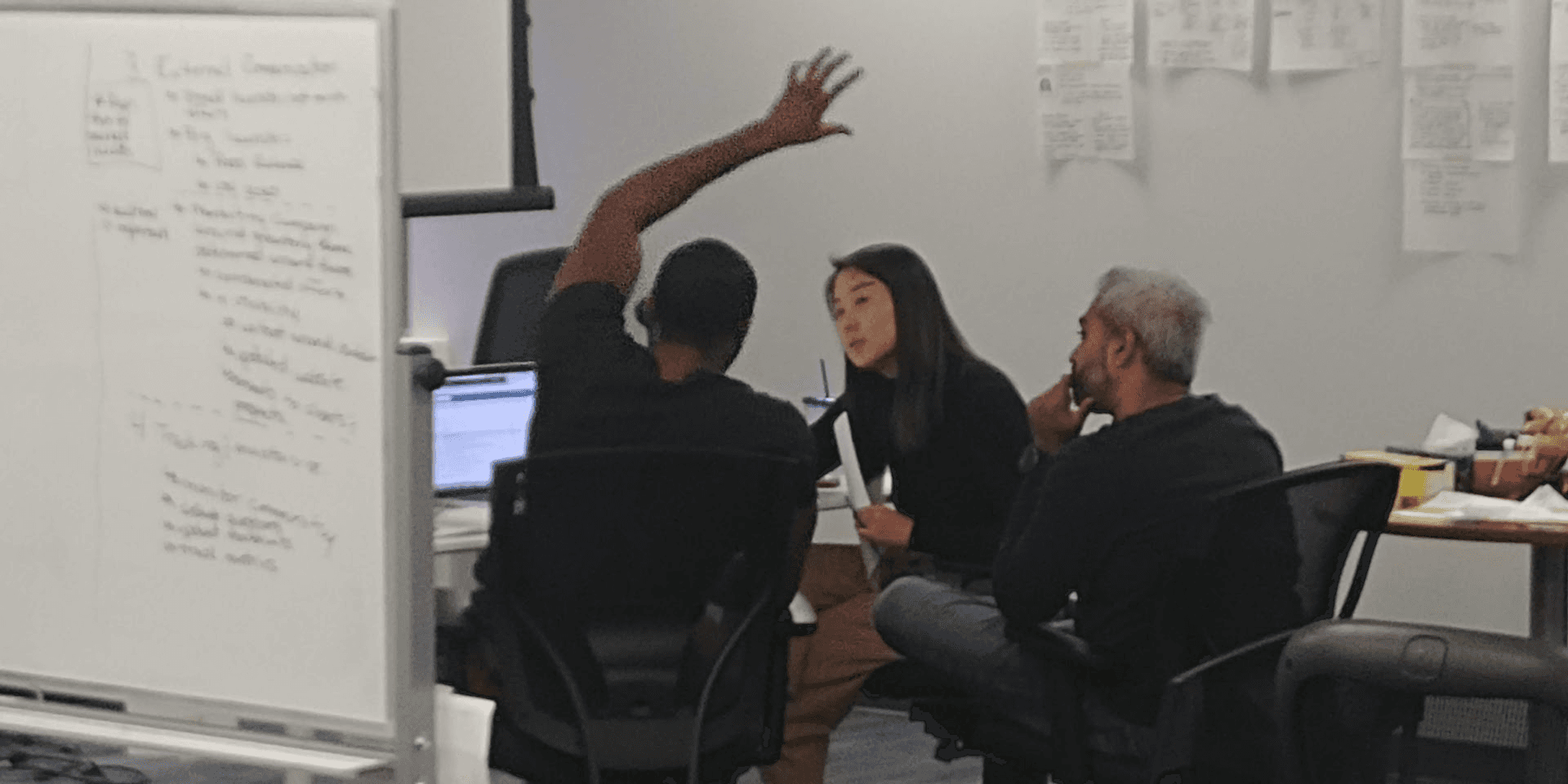
Conducting internal interviews with Customer Experience Success team members
At left: "A visual journey of our discovery and ideation process, capturing the evolving understanding of user needs and workflows."
At right: Flow notes of old version V5 by our dev lead team, laying the groundwork for seamless integration and development."
Blueprinting
To clarify this initiative, I held blueprinting workshops with leads from Product, Research, and Engineering. We learned a great deal from each subject matter expert about the phases of the current state of this service. It took a few sessions to assemble the current state blueprint, but in doing so, we collaboratively created a shared understanding and source of truth with greater speed and morale increased.
This allowed our stakeholders to clearly see where the gaps were and provided a guide for anyone new to the initiative. With everyone involved knowing where we stood, creating our future experience vision blueprint was much quicker. The sessions were electric with ideas and feasibility discussions.
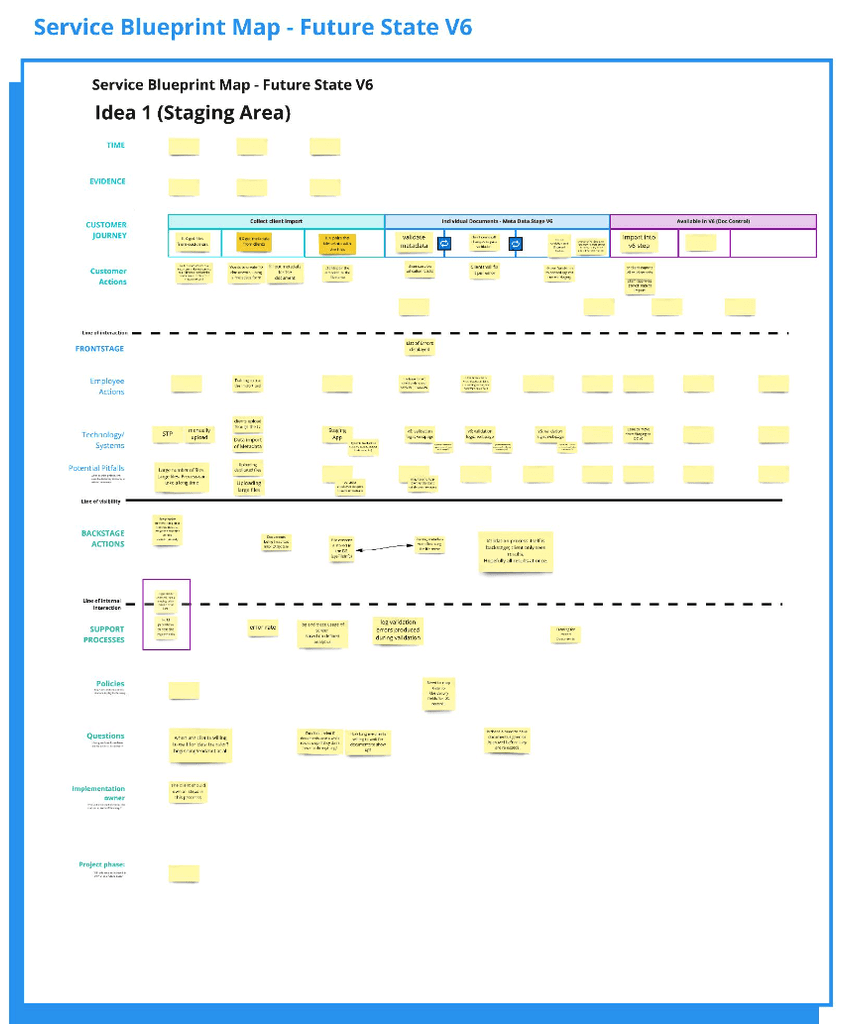
Prioritization
During our prioritization phase, we conducted group sessions where everyone contributed to breaking down user activities, comparing tasks, and identifying the necessary subtasks. These collaborative sessions were crucial in helping us prioritize tasks effectively through an impact and effort analysis.
Our product owner, Matt, also shared his vision around vertical slicing, which further informed our approach, ensuring that we could create a more manageable MVP that aligned with our collective goals.
Prioritization
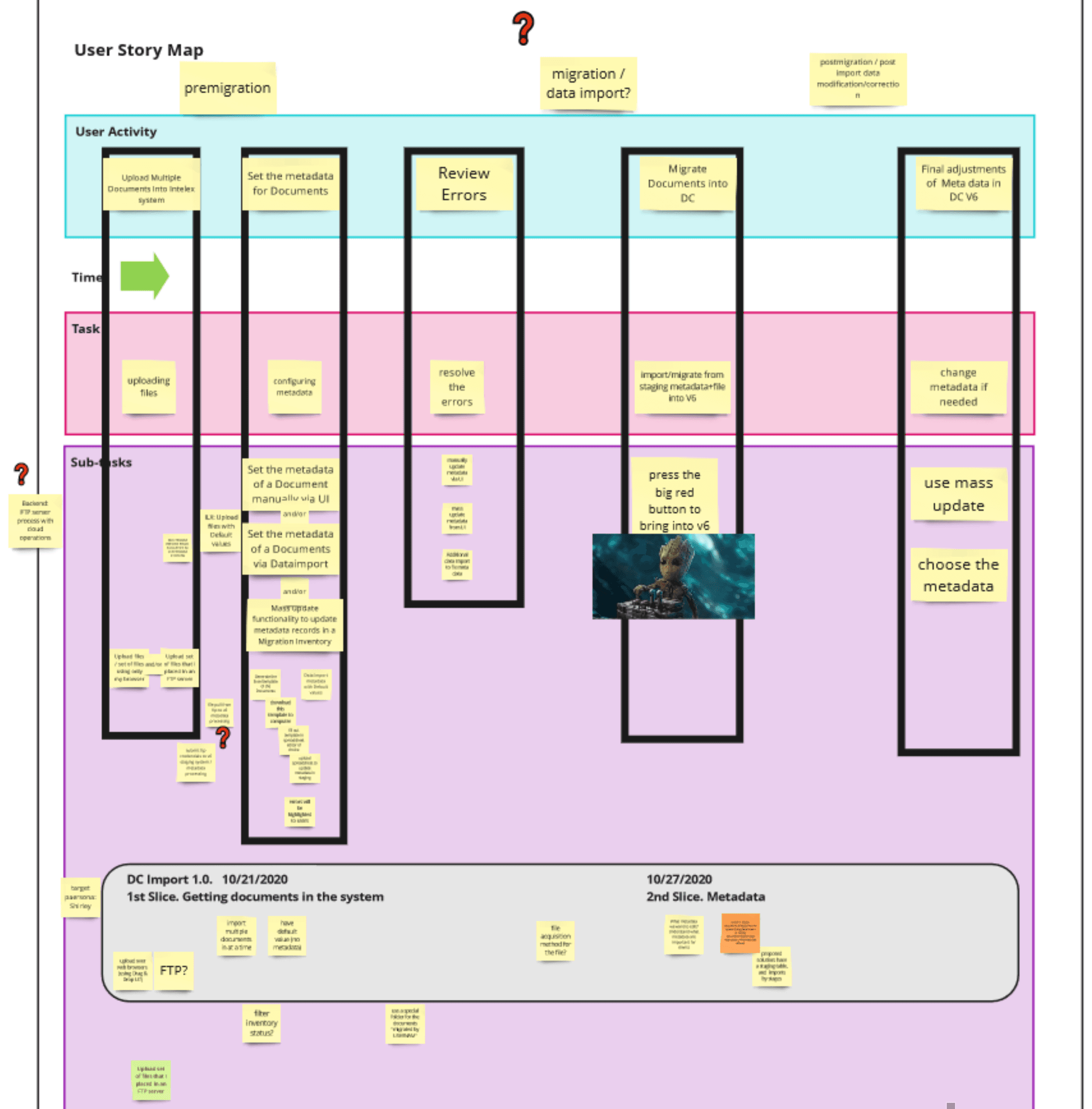
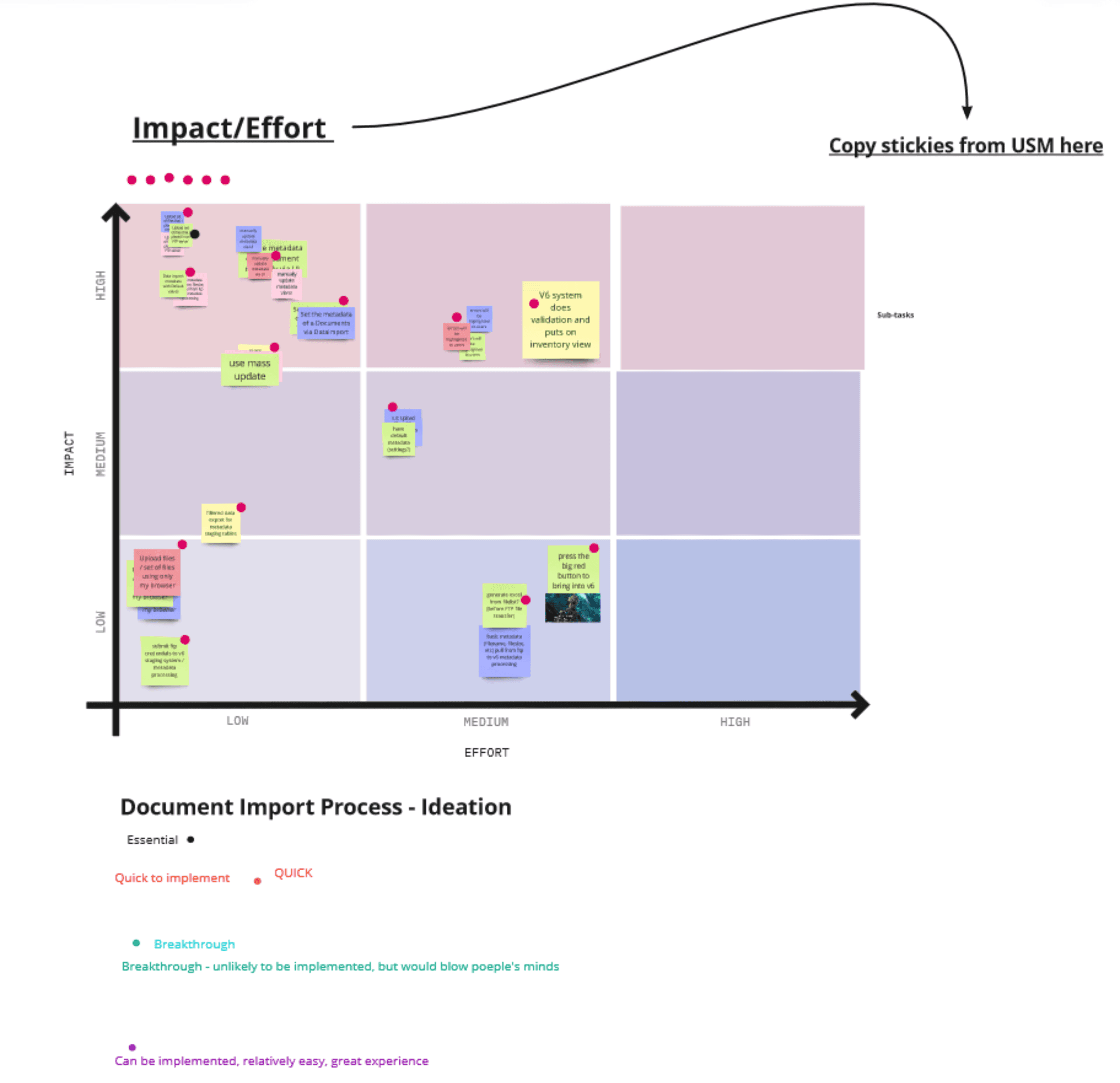
Our UX team developed a Miro-based system to track meeting progress, decisions, and action items. This method improves record-keeping and team communication.
Key Features:
Tracks decisions, outcomes, and action items
Uses Kanban-style nodes for detail expansion and tagging
Creates a timestamped timeline of meetings
Clearly outlines action items and responsibilities
Captures external insights (e.g., VOC activities)
This centralized system enhances team alignment, reduces follow-up meetings, and is continually improved based on feedback.
Breathing new life in…
"Step 3. Ideation & Design"
Task Flow
concept
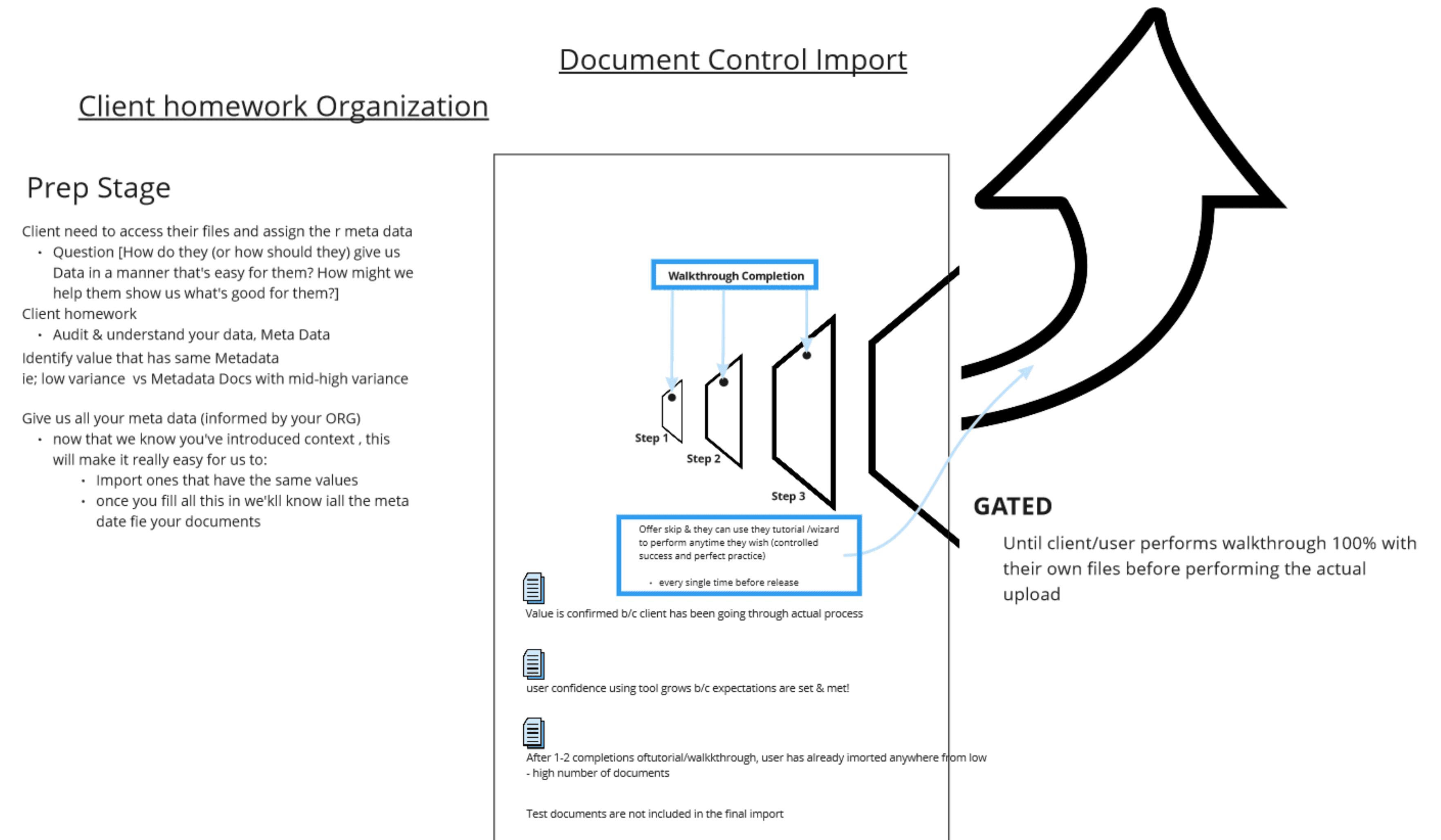
With a solid foundation established through our service blueprint and engineering sessions, we were ready to breathe life into a more streamlined design. Our concept ideation phase and design principles—focused on creating an experience that’s autonomous, adaptive, and integrated—guided this effort.
Leveraging our design system and established patterns, I crafted a mid to high-fidelity flow in Adobe XD that reflected our new vision, setting the stage for the final product.
Preliminary screens in Adobe XD.
Final Developed screens
Here's where it's at now…
Things I learned
The Organisational impact
Slides from our Product Town Hall video:
"UX Rookie to Champ"
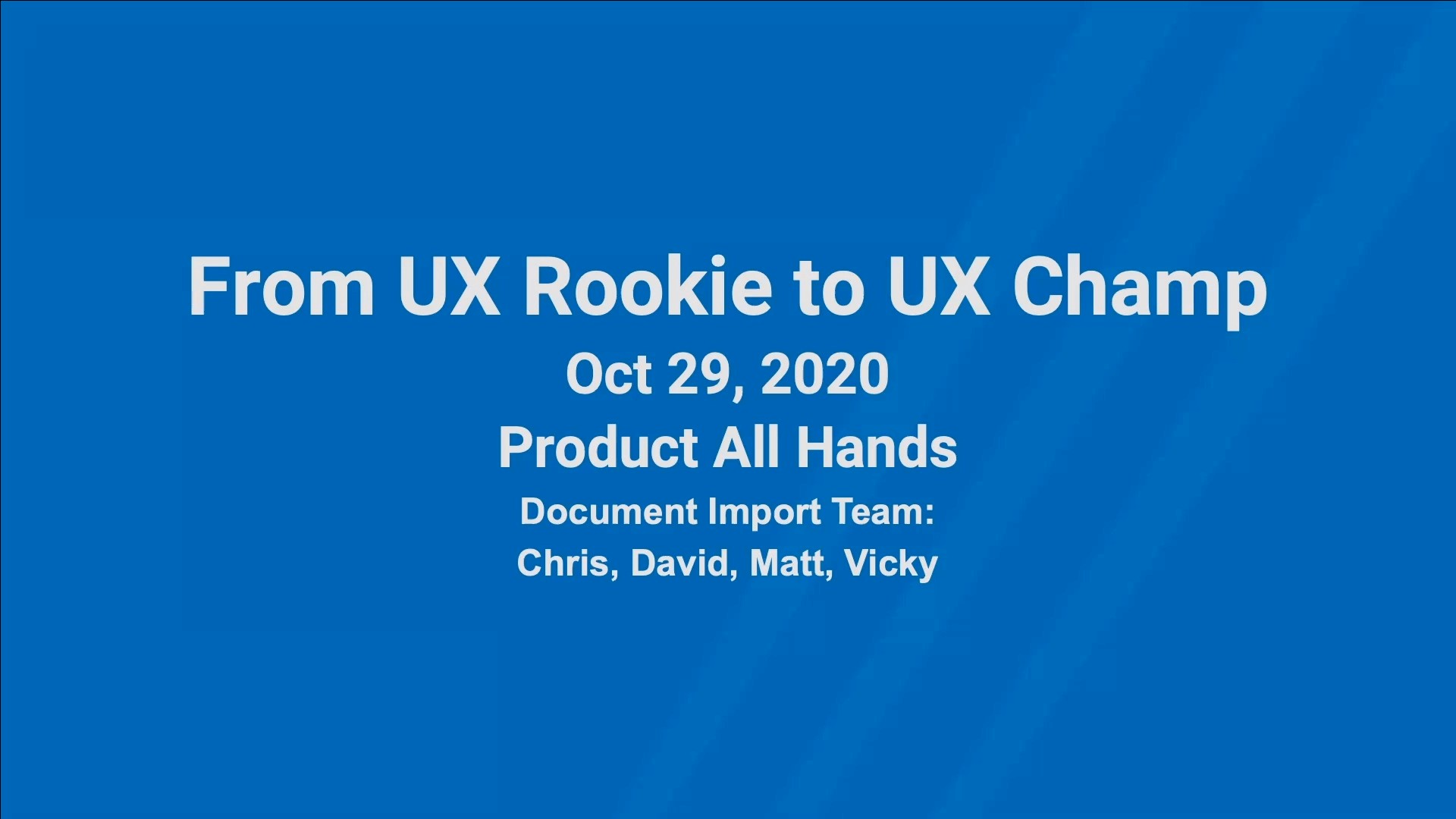
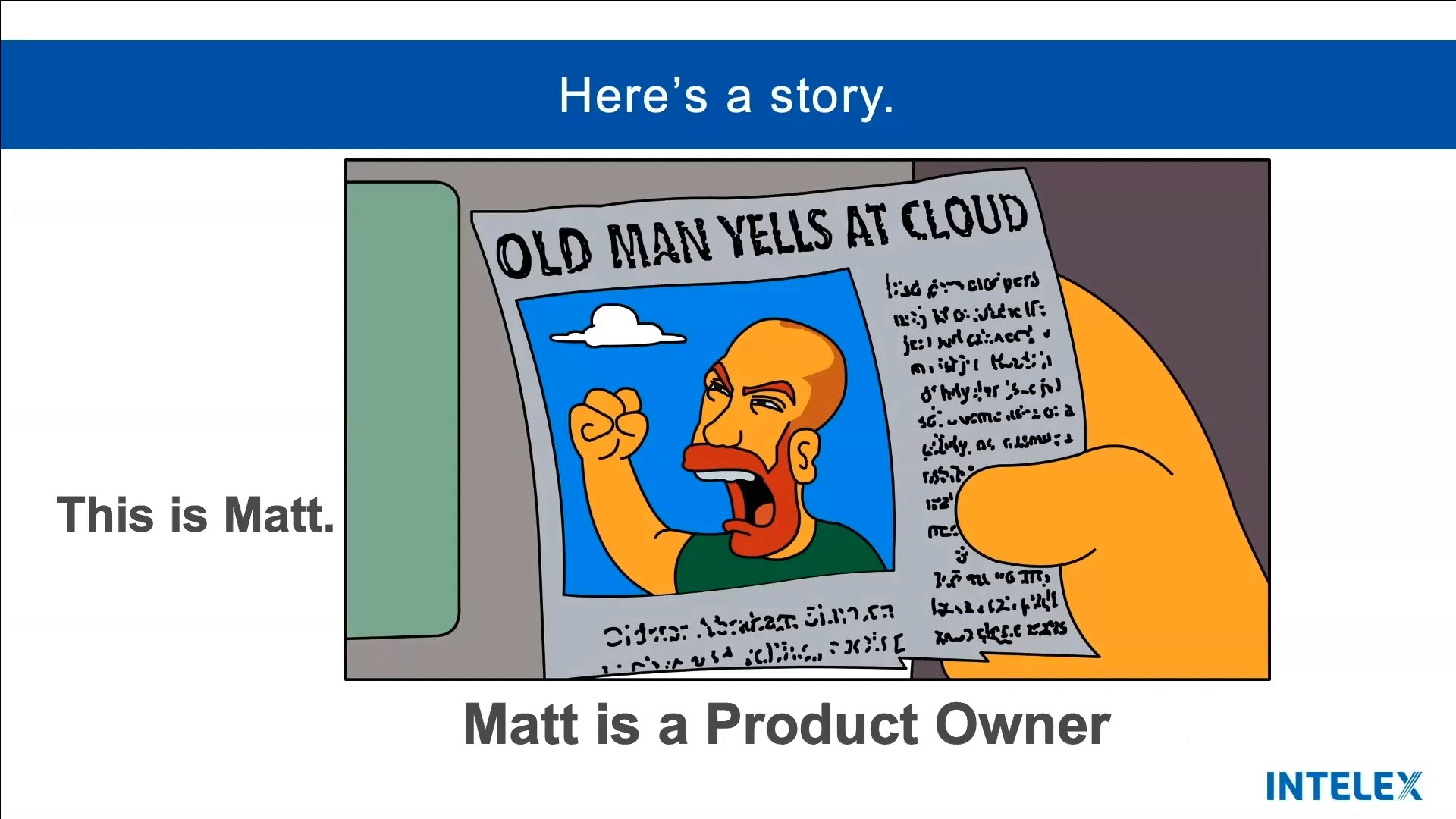
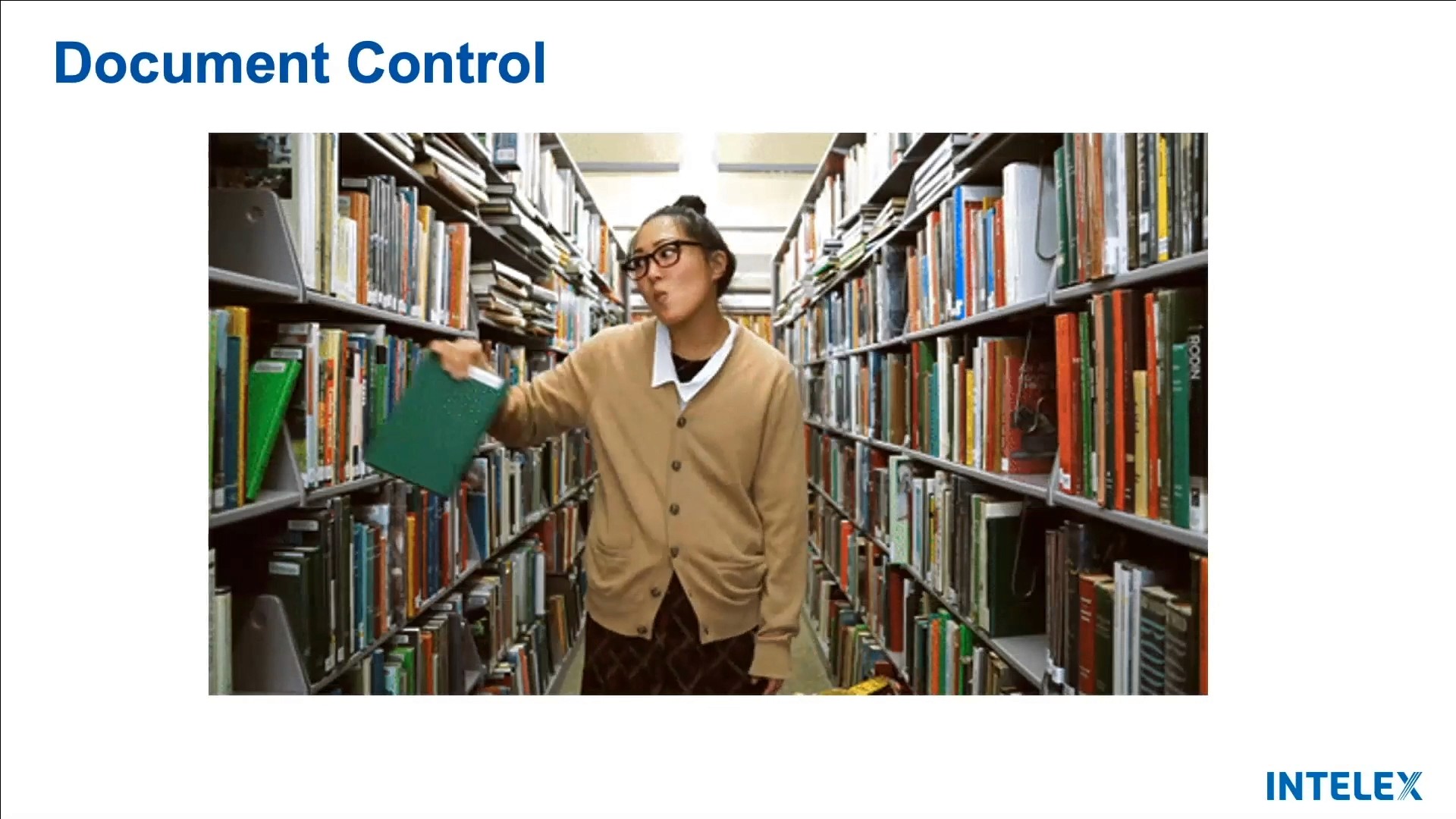
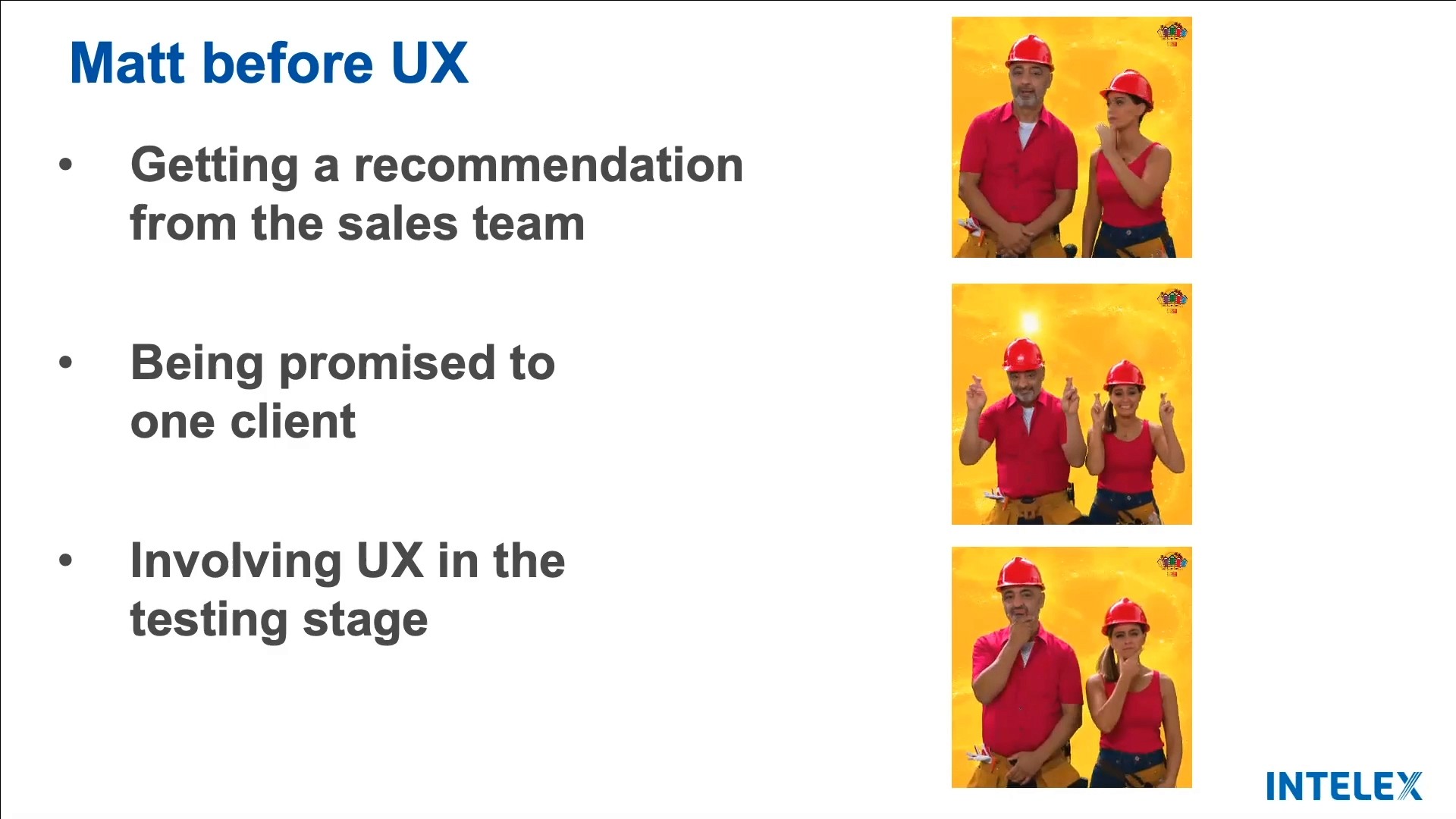
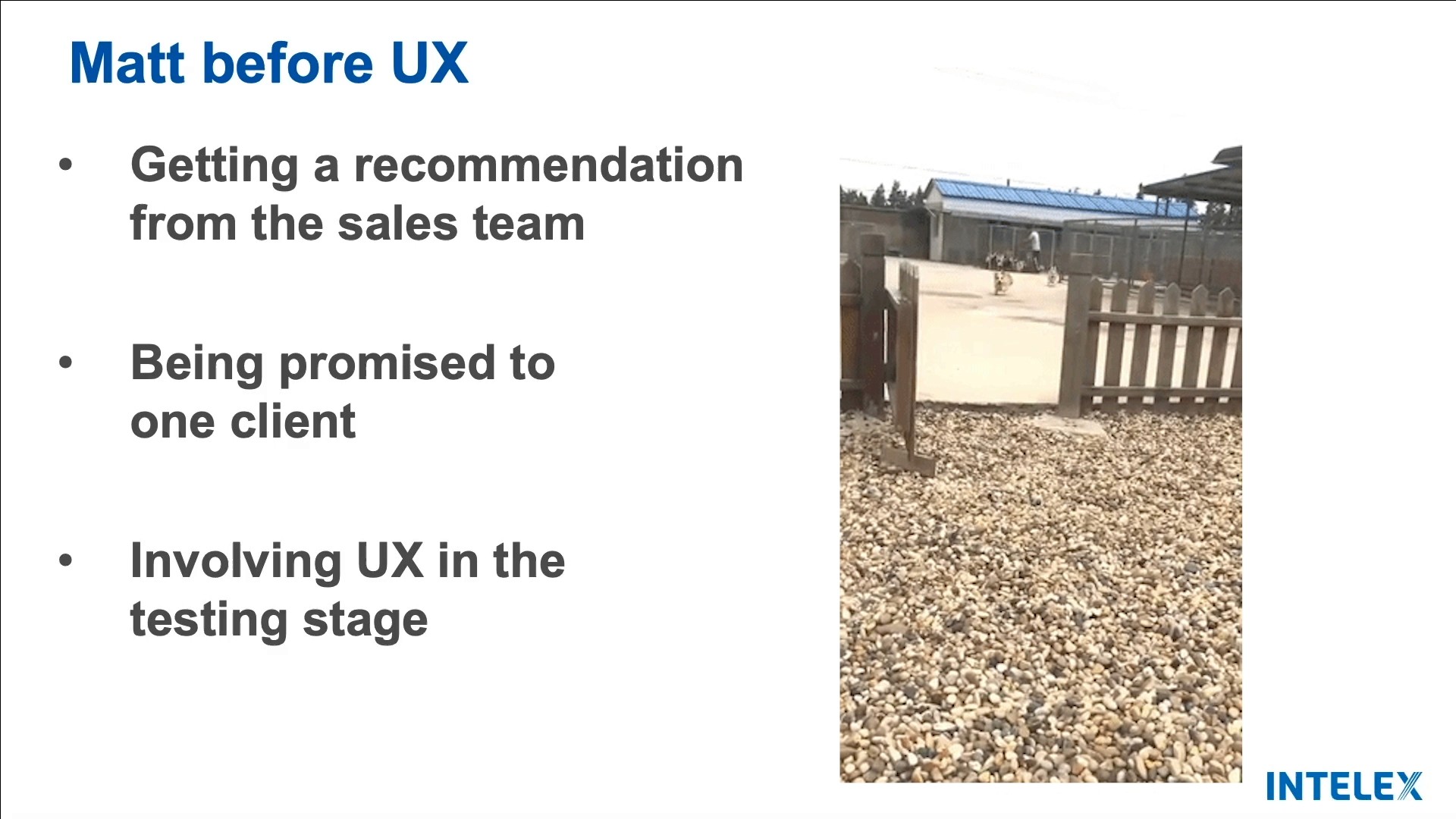
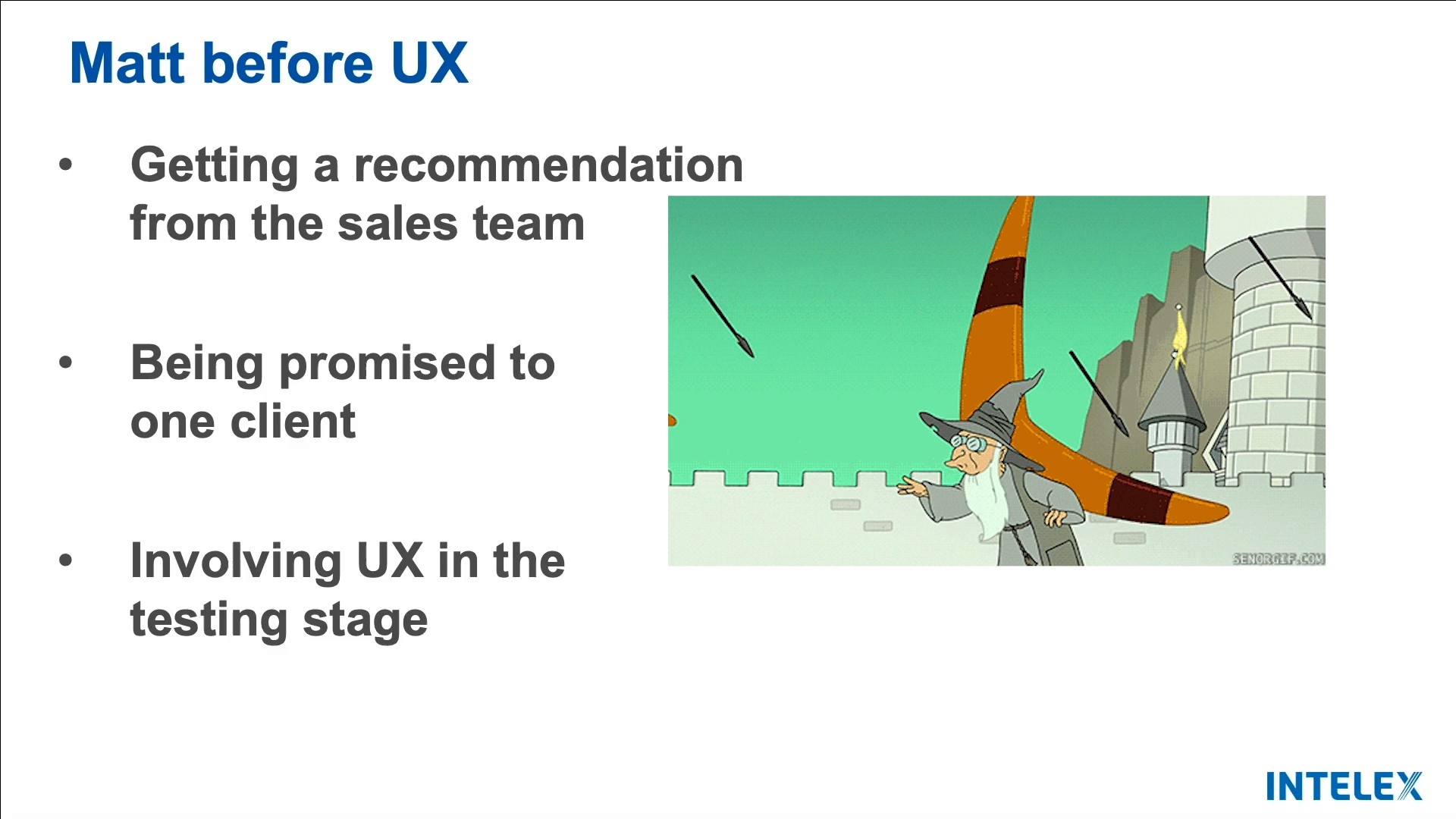
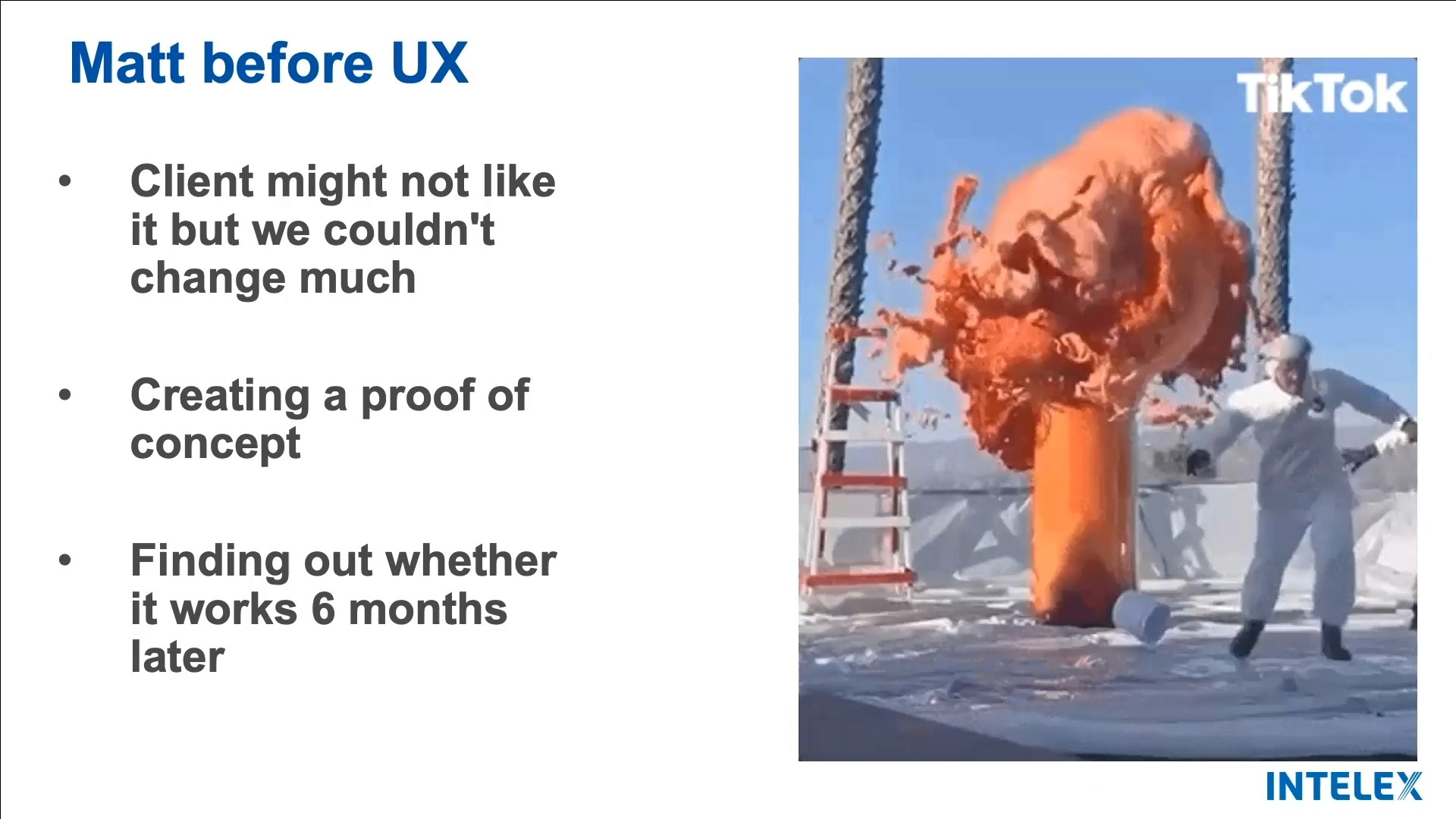
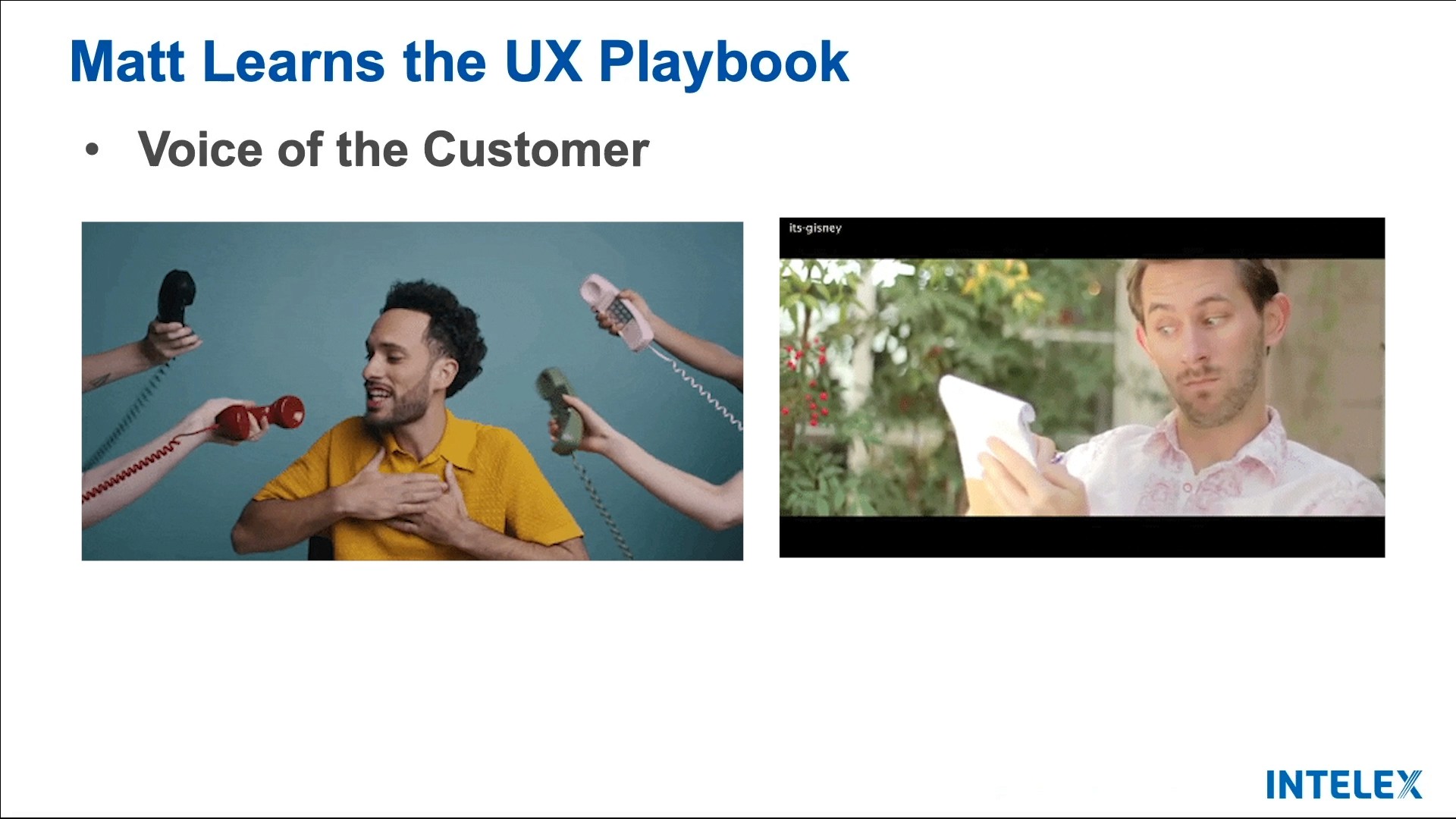
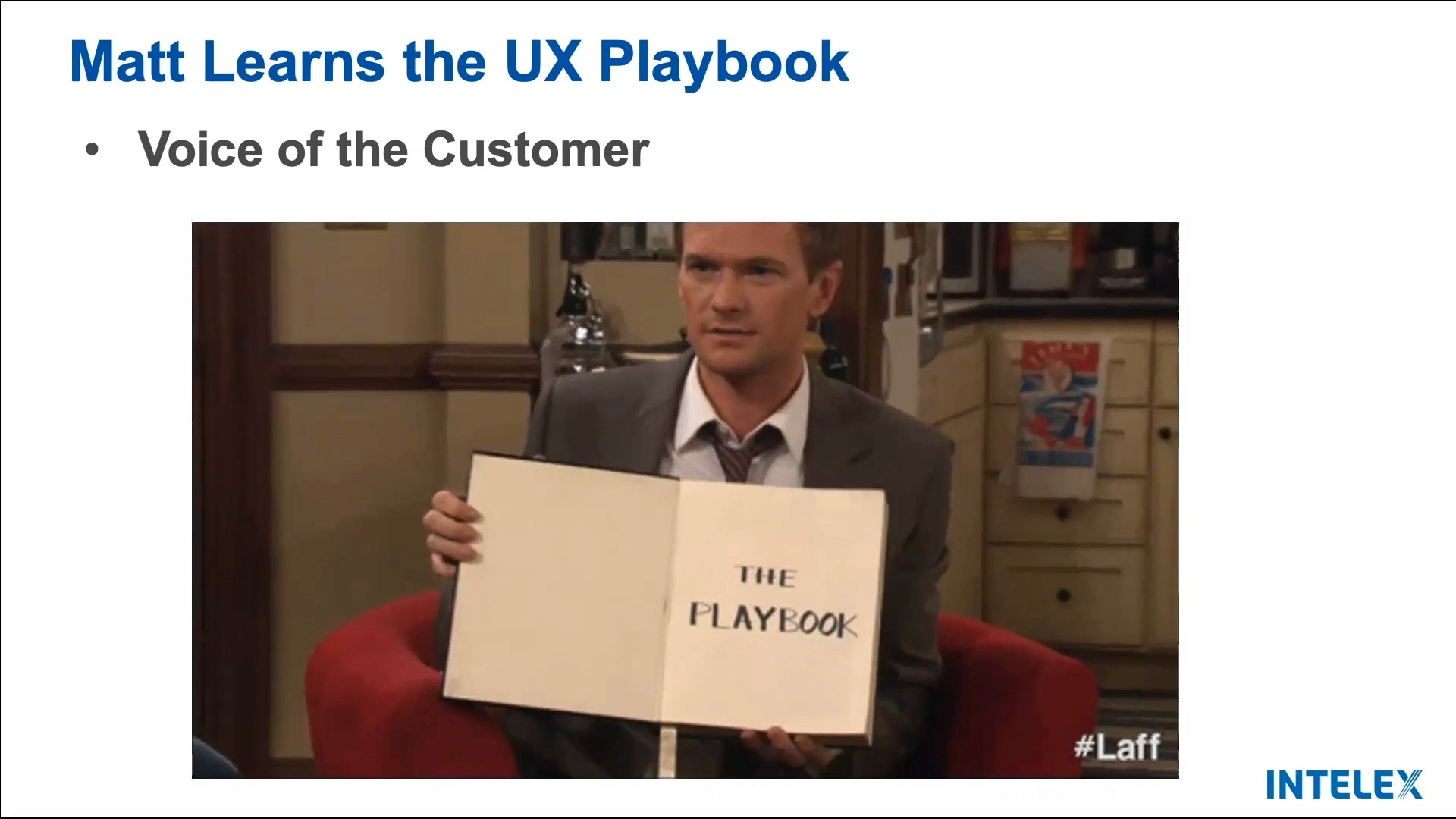
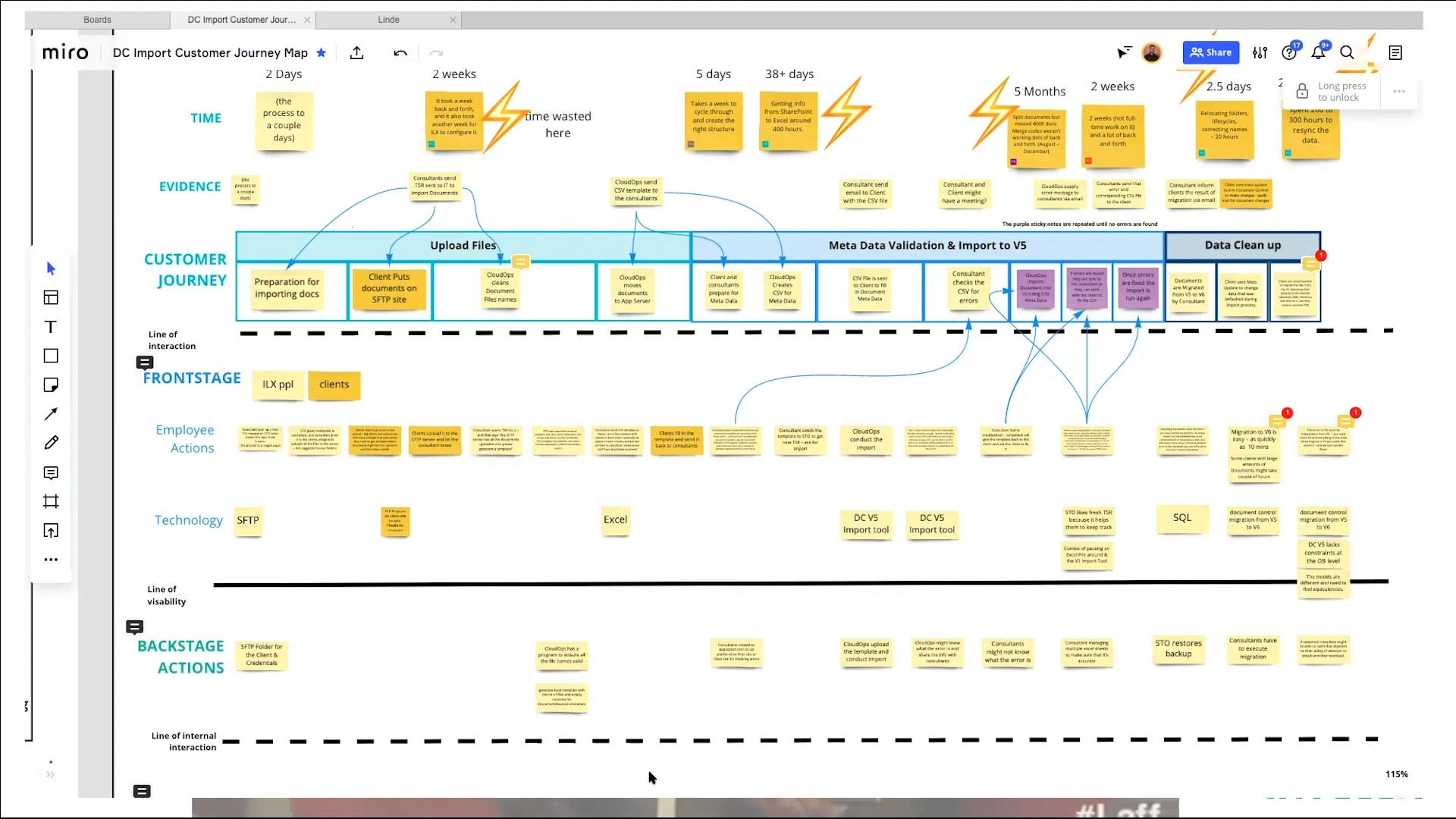
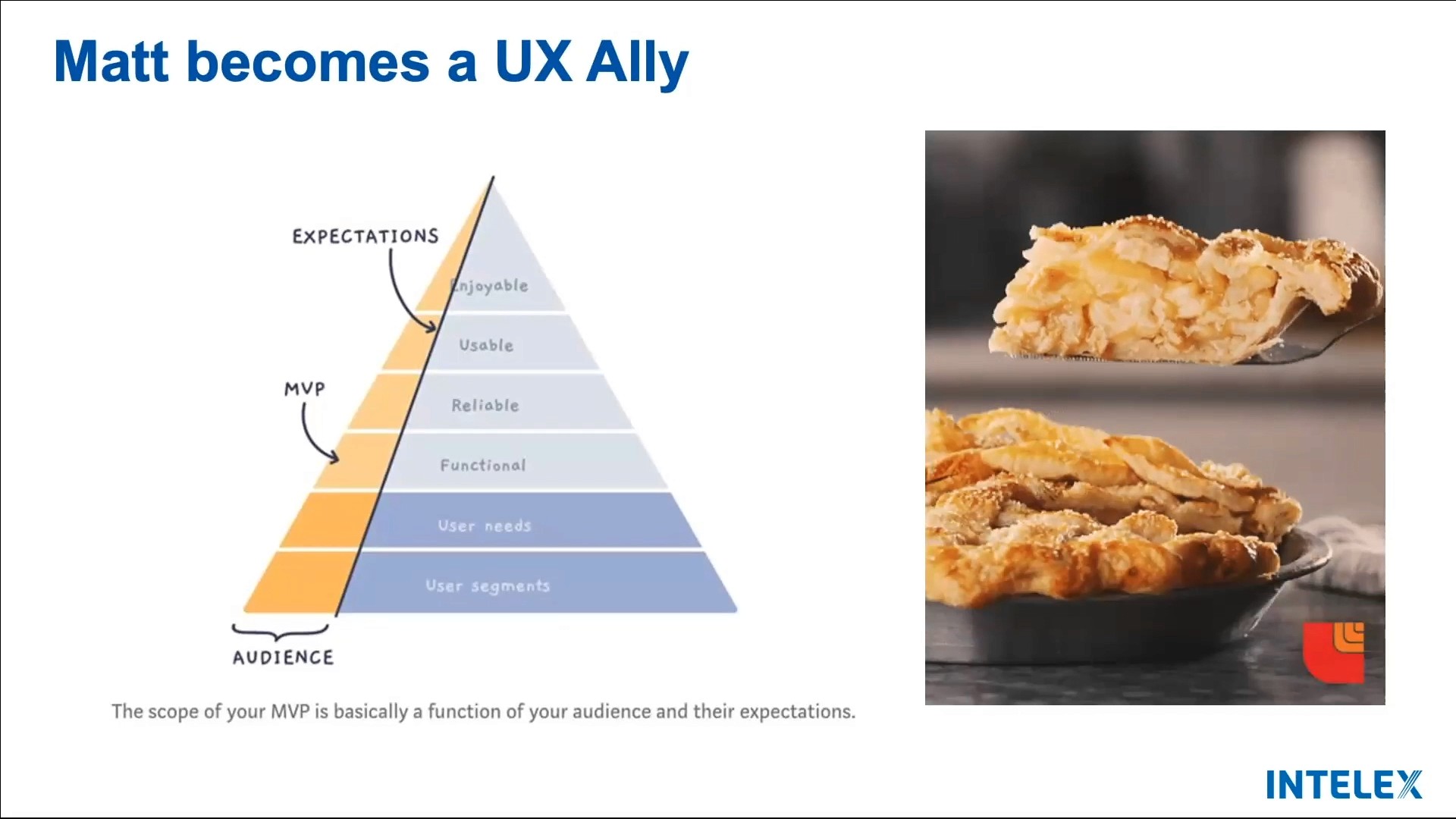
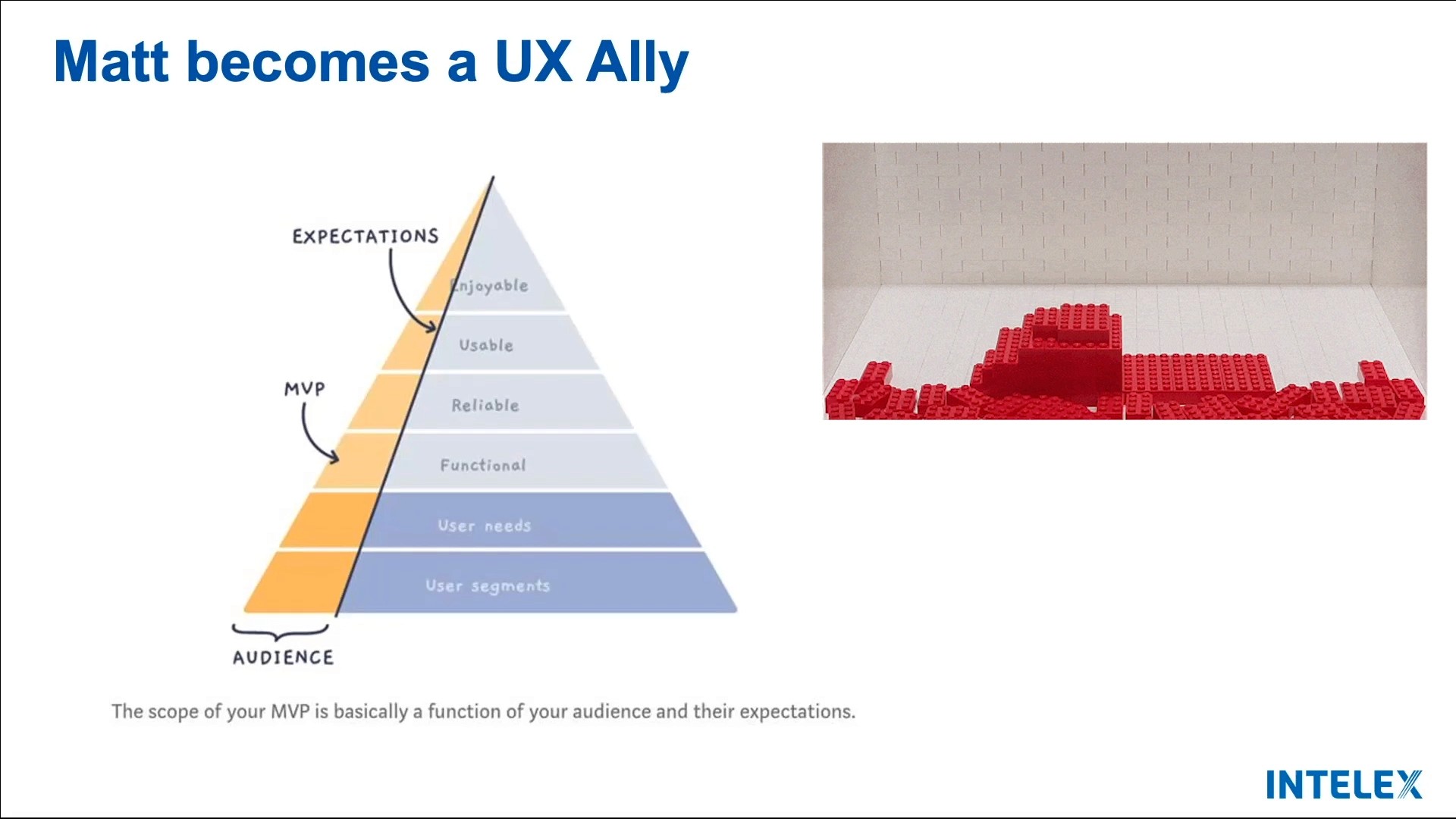
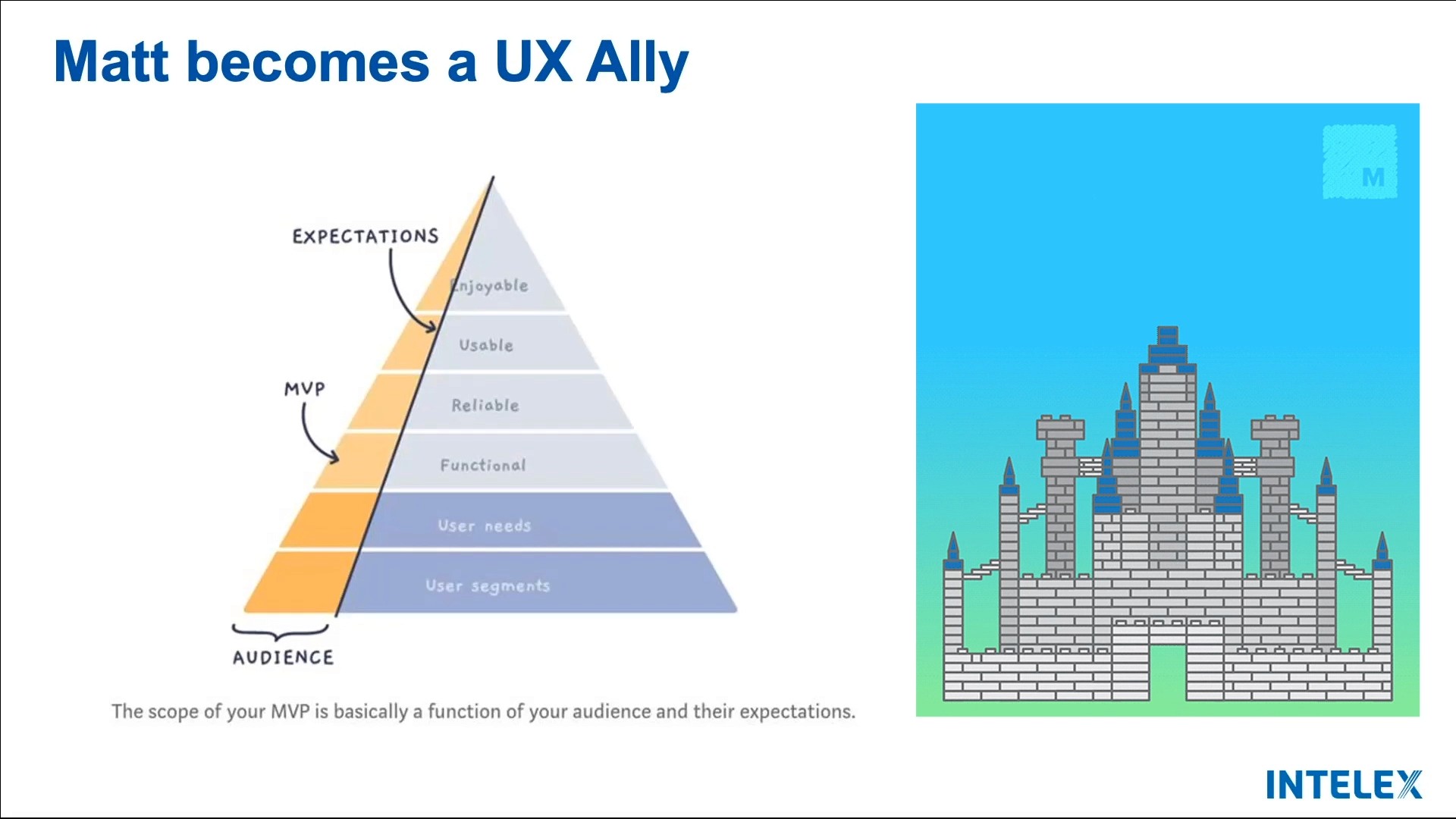
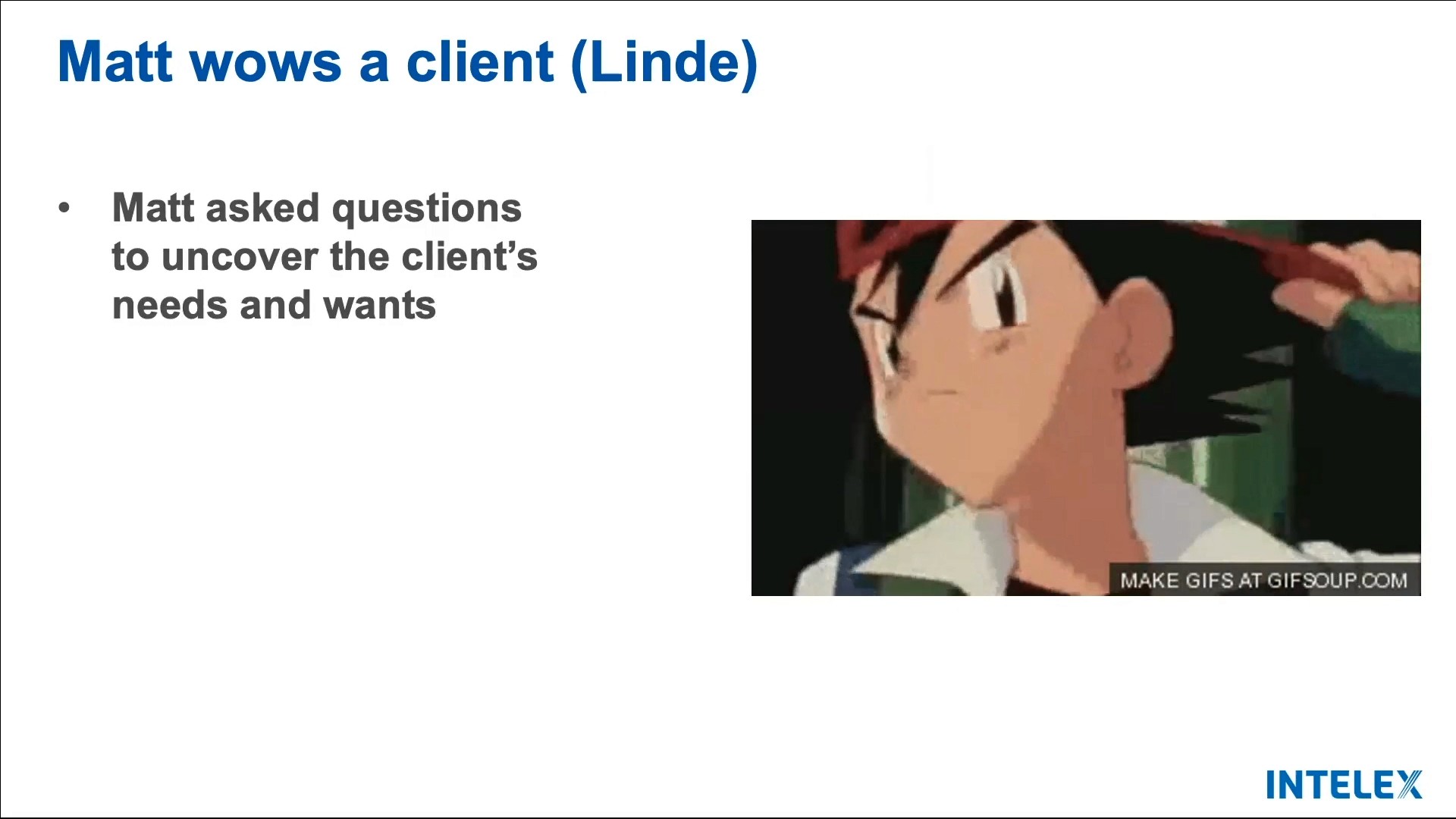
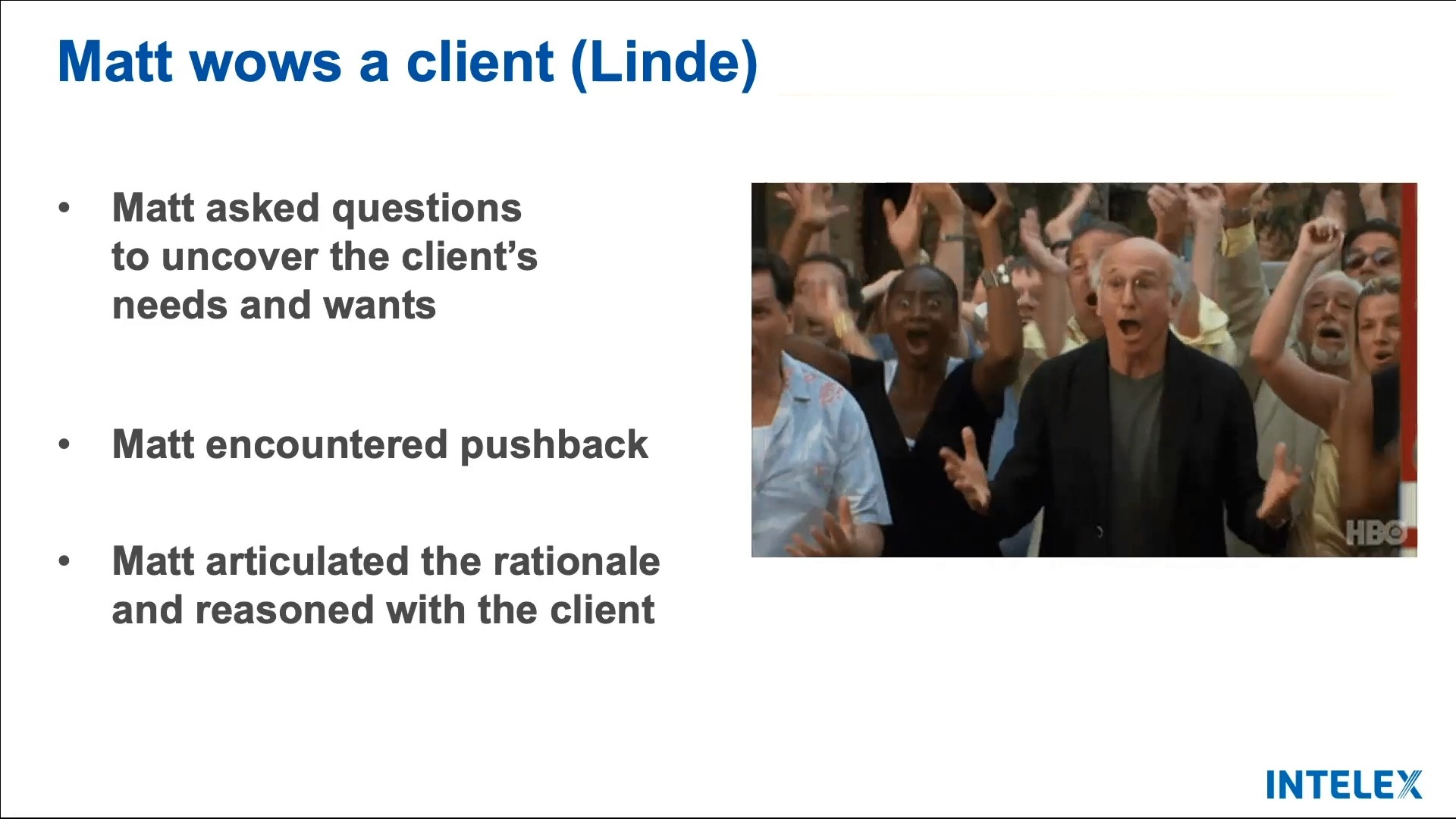
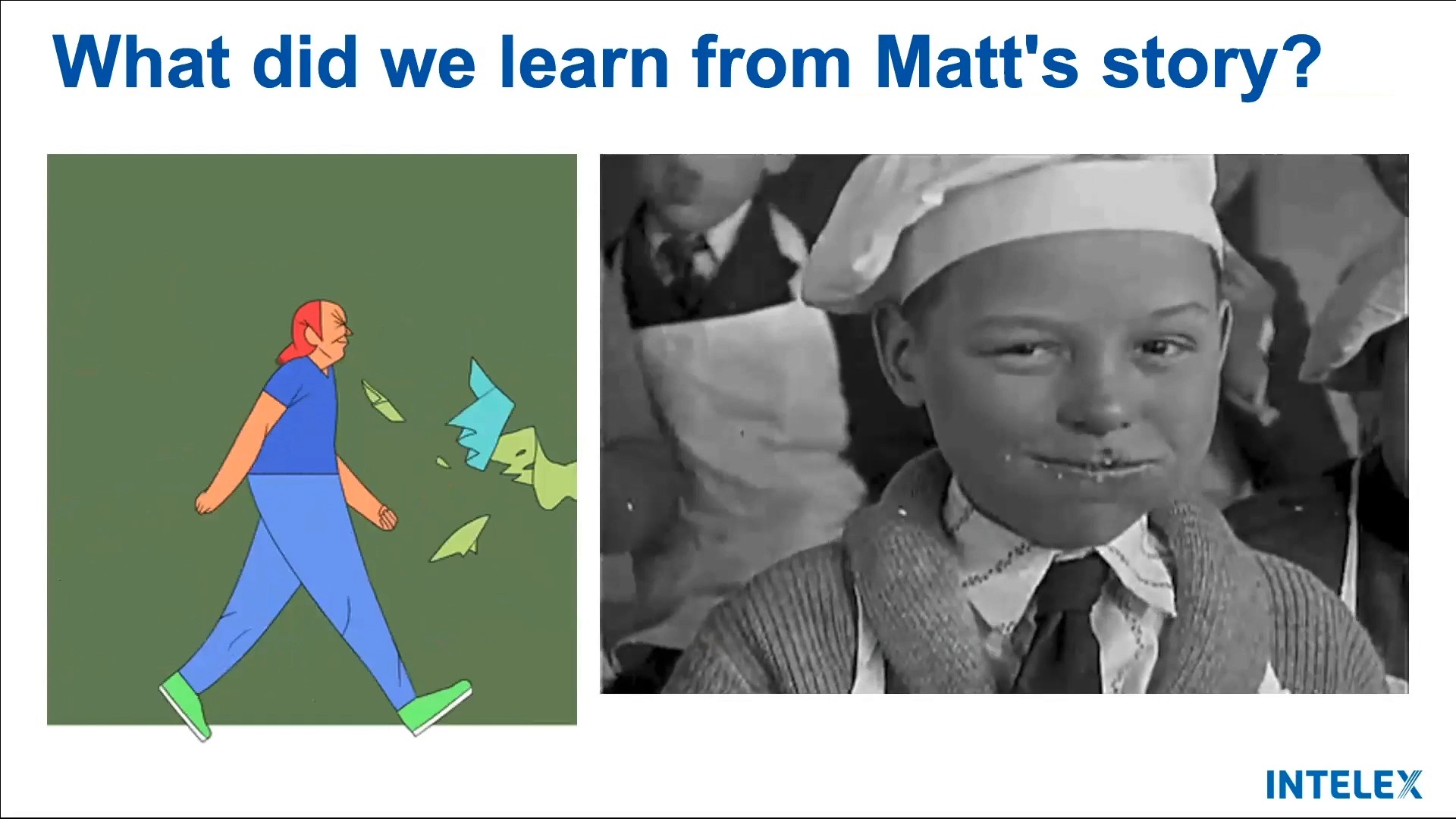
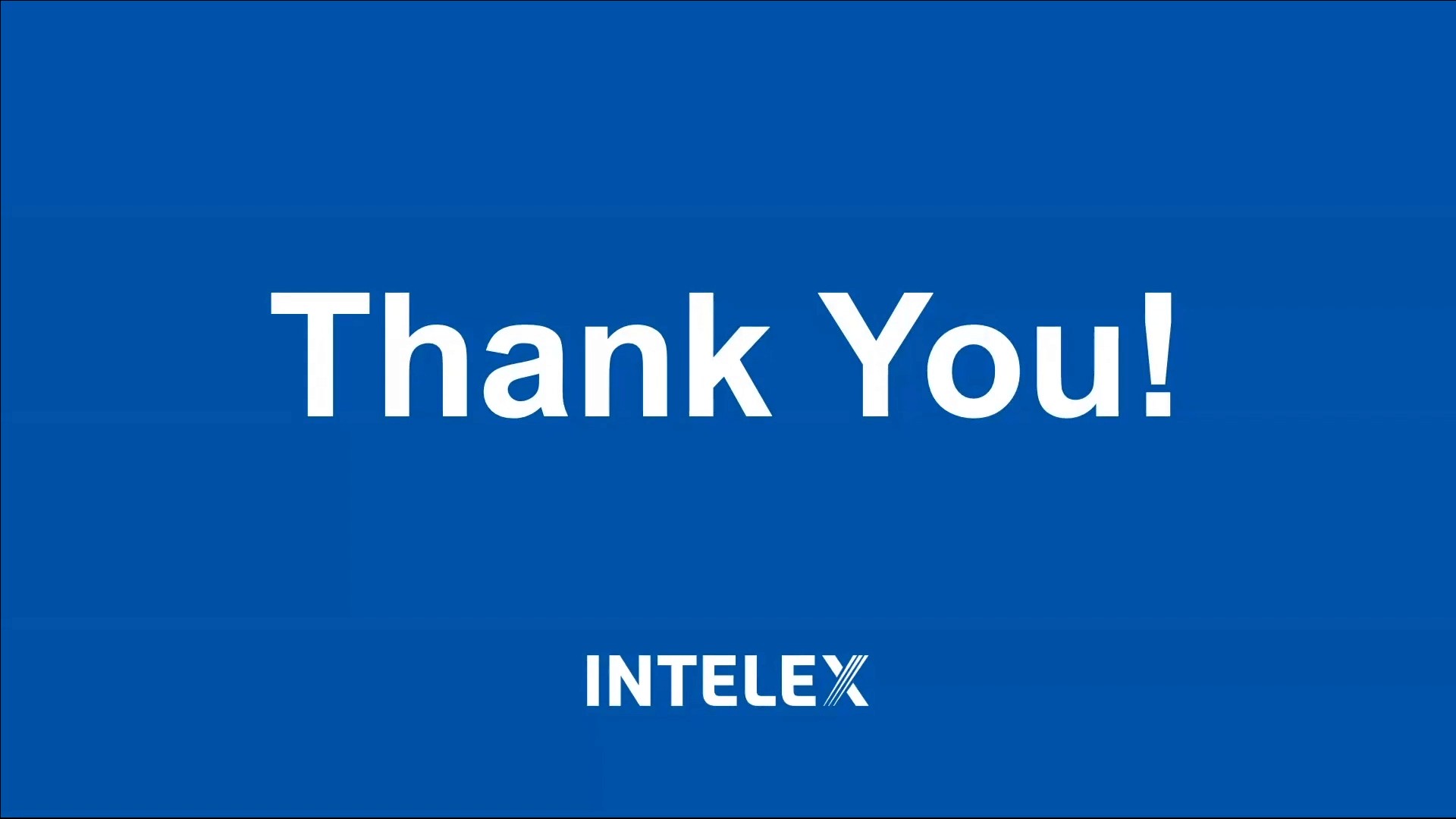
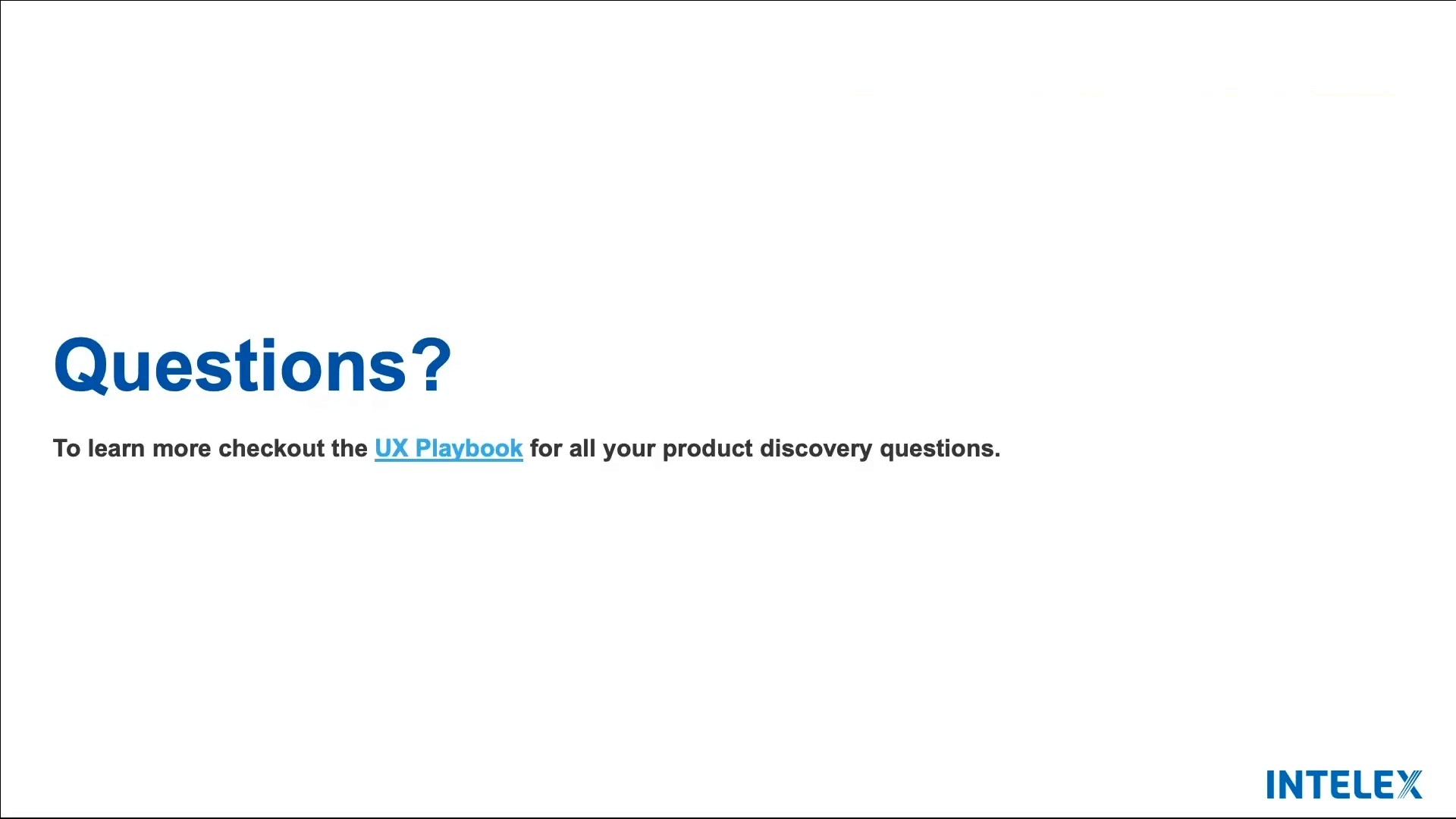
Context: This initiative culminated in a pivotal video presented at the Product Town Hall, showcasing how we shifted from a sales-driven model to one deeply rooted in the voice of the customer (VOC) and user experience (UX) methodologies. The video highlighted our journey from problem definition to solution delivery, demonstrating how these changes significantly impacted our development processes and organizational culture.
Impact on the Organization: This video was a turning point, sparking broader discussions and encouraging process improvements across the company. It broke down silos, promoted transparency, and empowered teams to adopt more agile practices.
This video symbolizes the successful culmination of our work and the broader impact we made by fostering a culture of collaboration and continuous improvement.
"Watch how our commitment to collaboration and transparency became the driving force behind process improvement and lasting change within our organization."
Our promotional video from the town hall
“Before UX involvement, user adoption was low. Releases would come back needing an improvement package, or we find out 6 months later that the direction wasn’t working for clients.
But using the UX playbook guided by Chris and Vicky, we captured user feedback early to level set and build our foundations out with greater confidence, and defensible evidence that justified our team direction.”

Matt Conquer
Product Owner
“He brings a passion to everything he does, which is infectious. I have often described him as the beating heart of the UX team. Chris is driven by a desire to keep digging deep into the hows and whys of every initiative.
He is fearless even when he is tackling something that is new or outside of his regular skillset. Chris is a team player, collaborative and engaging. Over the years, he has become someone I can always rely on to deliver projects, tasks or initiatives - regardless of the complexity.
He is definitely a strong value add to any UX organization.”

Kara-Anne Fraser
UX Manager
“Chris is a passionate designer with excellent interpersonal skills who always strives to make the design process transparent and welcoming to stakeholders and other non-designers/ product people.
In my experience Chris is someone I can always rely on to deliver projects, tasks and initiatives on-time and done to a high standard of quality, no matter the level of complexity or ambiguity.
Chris is an excellent add to any team seeking to grow their design organization through his thoughtful approach to design and design process.”

Marc Aquino
Senior Product Designer
"I worked with Chris on several projects during the pre-design and research phases.
Chris brings a great attitude, passion for the users, and booming laughter to our projects. He is driven to understand users and their needs.
He is advocating for UX research, by actively integrating research in his work, and constantly learning about research. Chris’ bright personality and humour are best demonstrated during his presentations - he is very comfortable with public speaking, and naturally talented in conveying the messages vividly to his audience."

Vicky Su
UX Researcher
Next up

